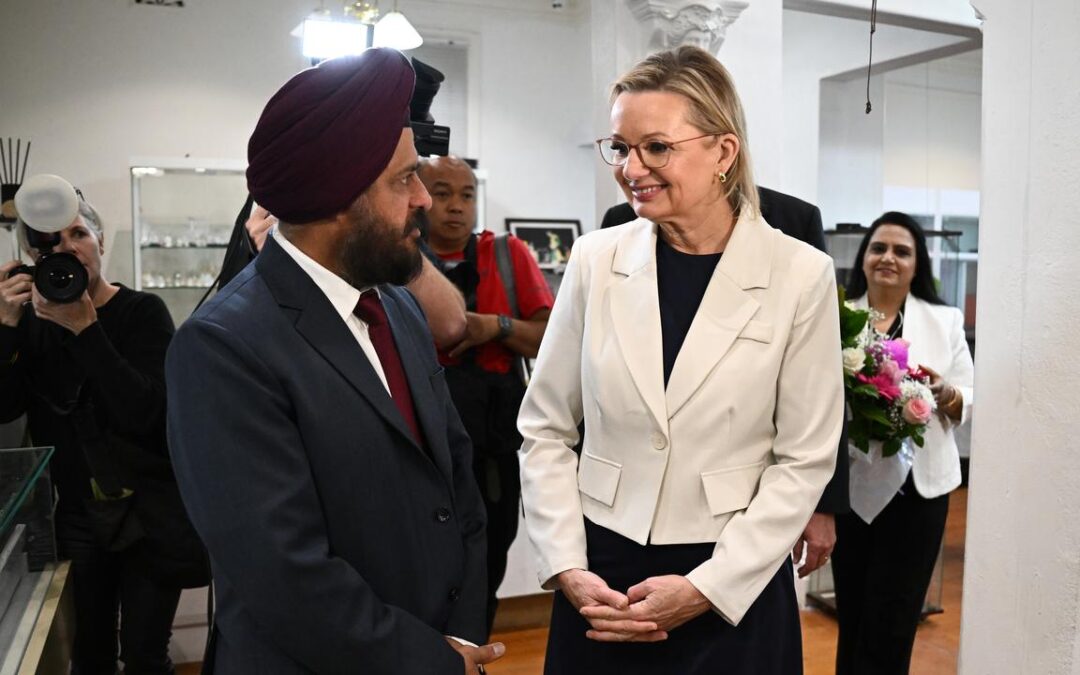
Coalition seeks to rebuild ties with Indian community
A coalition senator has urged the party to move on after a Liberal colleague sent the opposition into damage control after saying the government was bringing in Indian migrants who would vote for Labor.
Senator Jacinta Nampijinpa Price’s controversial comments led Opposition Leader Sussan Ley to reiterate coalition support for the Indian community and visit leaders and business owners in western Sydney on Sunday.
Liberal Senator Jane Hume said the party needed to show its support for the community, following a vocal backlash.
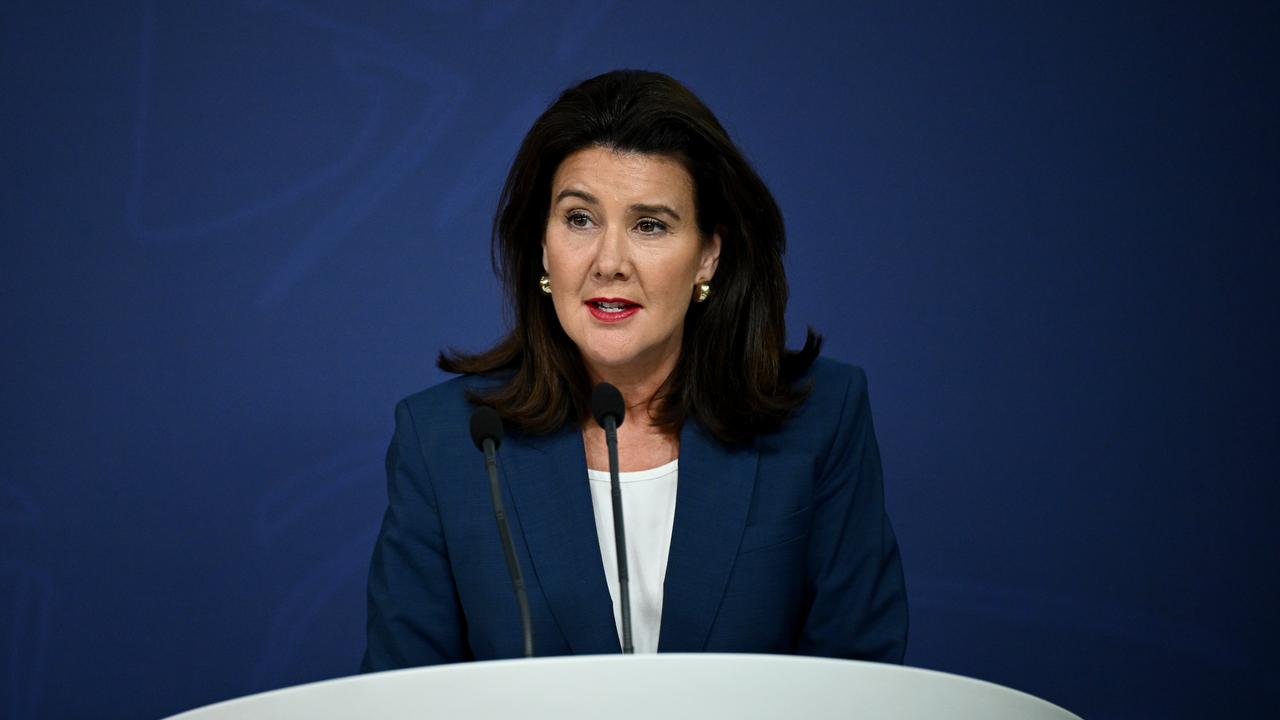
“It probably is important to demonstrate that we are supportive of our Indian community, who have contributed so much to our society, to our economy, to our culture,” she told Sky News on Monday.
“The most important thing here is that we move on from this. Jacinta has stepped back her words that she said last week.”
Former deputy prime minister Barnaby Joyce suggested Senator Nampijinpa Price would be better off apologising.
“Best thing to do is apologise and move on, get off it, get on to another topic,” the Nationals MP told Seven’s Sunrise program on Monday.
“I don’t think Jacinta has it in for Indians by the way – I think she’s trying to convey … migration is out of control.”
On Sunday, Ms Ley visited the Indian community in the western Sydney suburb of Harris Park, which is also known as Little India, to smooth over any concerns.
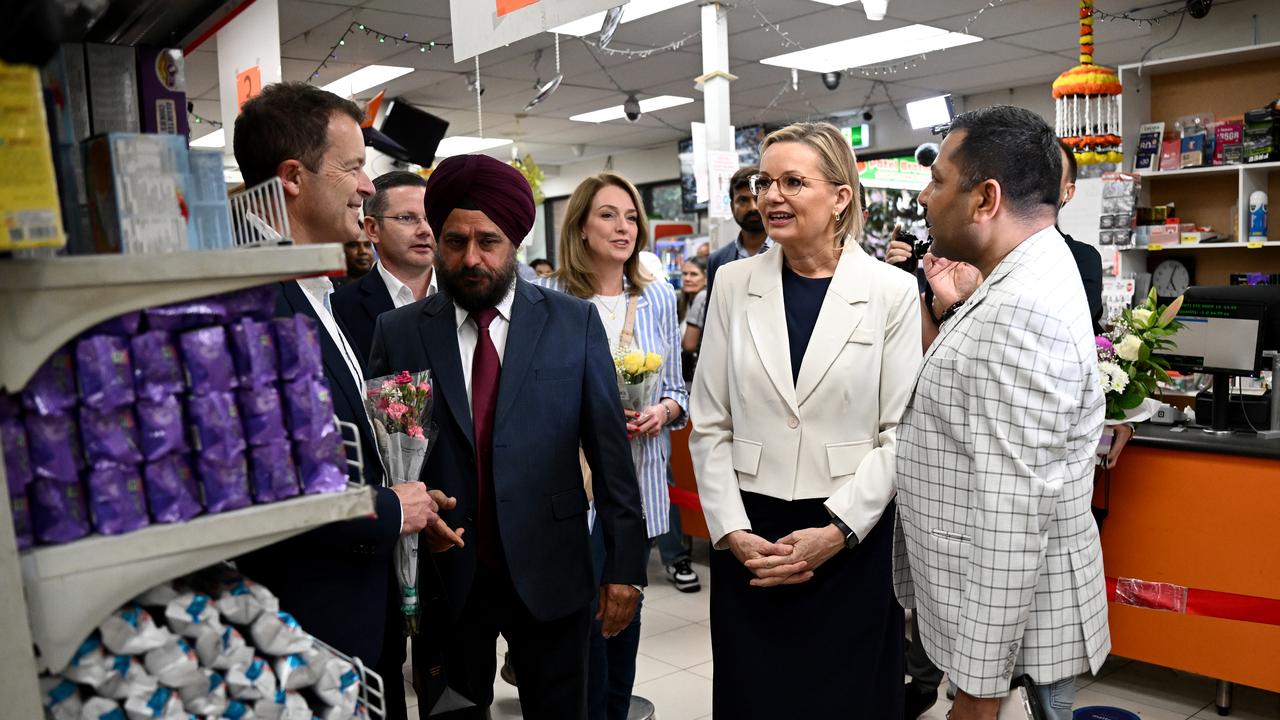
Members of the community extended a warm welcome to the opposition leader, even though she had earlier declined to offer a formal apology on the behalf of the coalition
Community members welcomed Ms Ley with smiles and flowers, and she was taken on a walking tour of a high street, where she met local business owners and sampled food at a restaurant.
Liberal Senator Maria Kovacic was also among the coalition contingent at Harris Park and said the comments had hurt Indian community members.
“Whether it was a misunderstanding, whether it was an error, whether it was something taken out of context, the important thing is that when something like that occurs, that you quickly go to repair that,” she told ABC Radio.
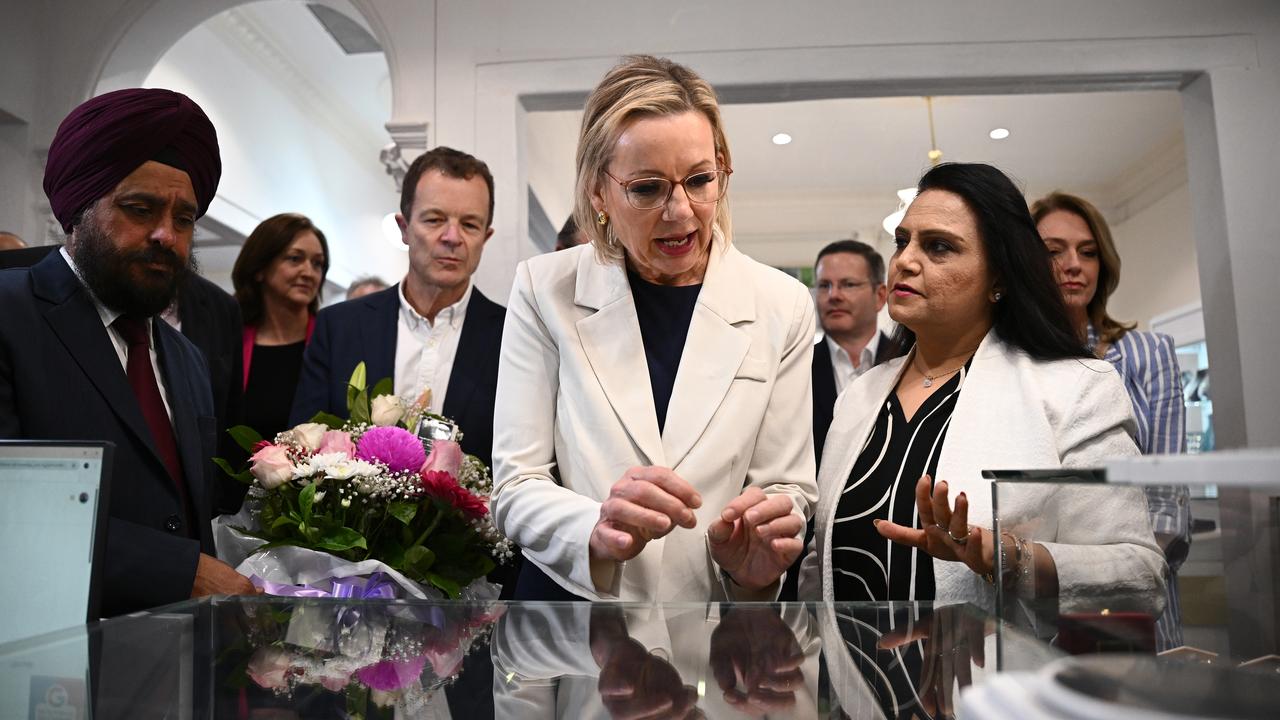
“What we need to do as a coalition looking to come back into government is to listen to Australians and understand what is important to them.”
In a statement, Senator Nampijinpa Price said she regretted “not being clearer in my comments”.
“I know that many Australians of Indian ancestry – and Indian migrants living in Australia – are distressed, not only by my comments but also in reading associated newspaper coverage,” she said on social media.
“My comments were never intended to be disparaging towards our Indian community.
“And I wish no ill-will whatsoever to the Indian community – or any other migrant group.”
Senior government minister Tanya Plibersek on Monday said the senator should apologise.
“Jacinta Price should apologise and if she doesn’t Sussan Ley should make her apologise,” she told Seven.
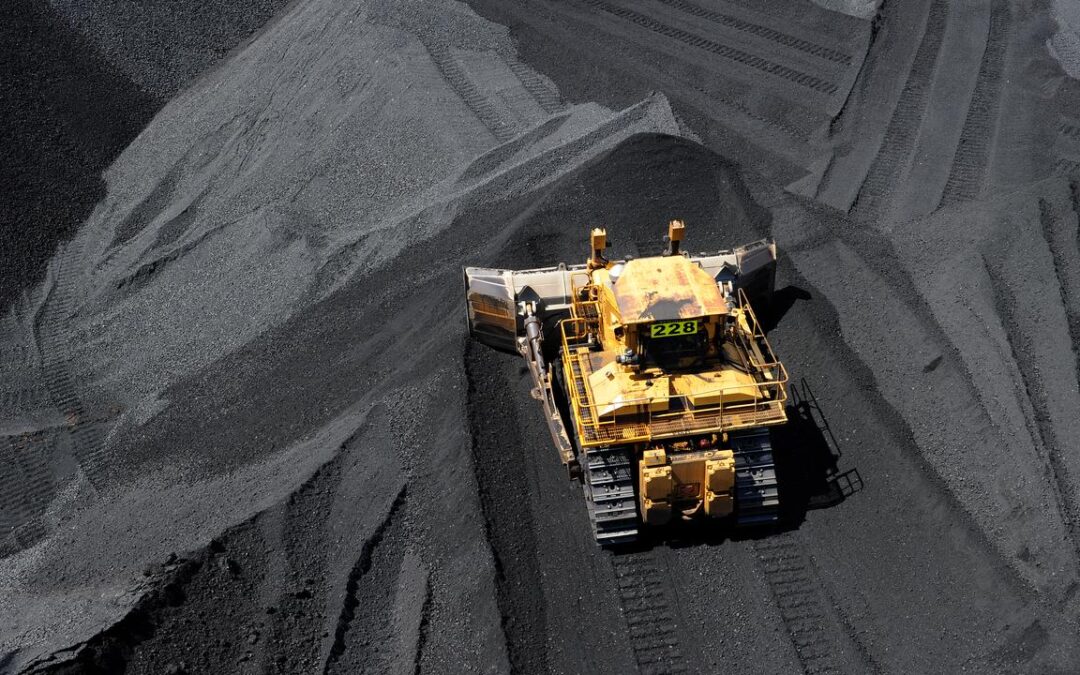
Coal mine’s generous diesel tax credits a fresh target
One of Australia’s largest proposed coal projects could absorb more in diesel tax exemptions in its lifetime than the initial sum sunk into its construction, environmental groups say.
About $44 million a year would be rebated to Whitehaven for its Winchester South coal mine under the fuel tax credit scheme, which is facing renewed scrutiny for its drag on public finances and decarbonisation goals.
The tax exemptions were introduced decades ago when the Commonwealth first introduced fuel taxes, based on the principle that off-road users should be spared from the costs of maintaining infrastructure.
Fuel tax is no longer ring-fenced for road repairs, however, and critics argue the scheme has become too costly – clocking in at roughly $11 billion a year – and keeping diesel users hooked on the emissions-intensive fuel.
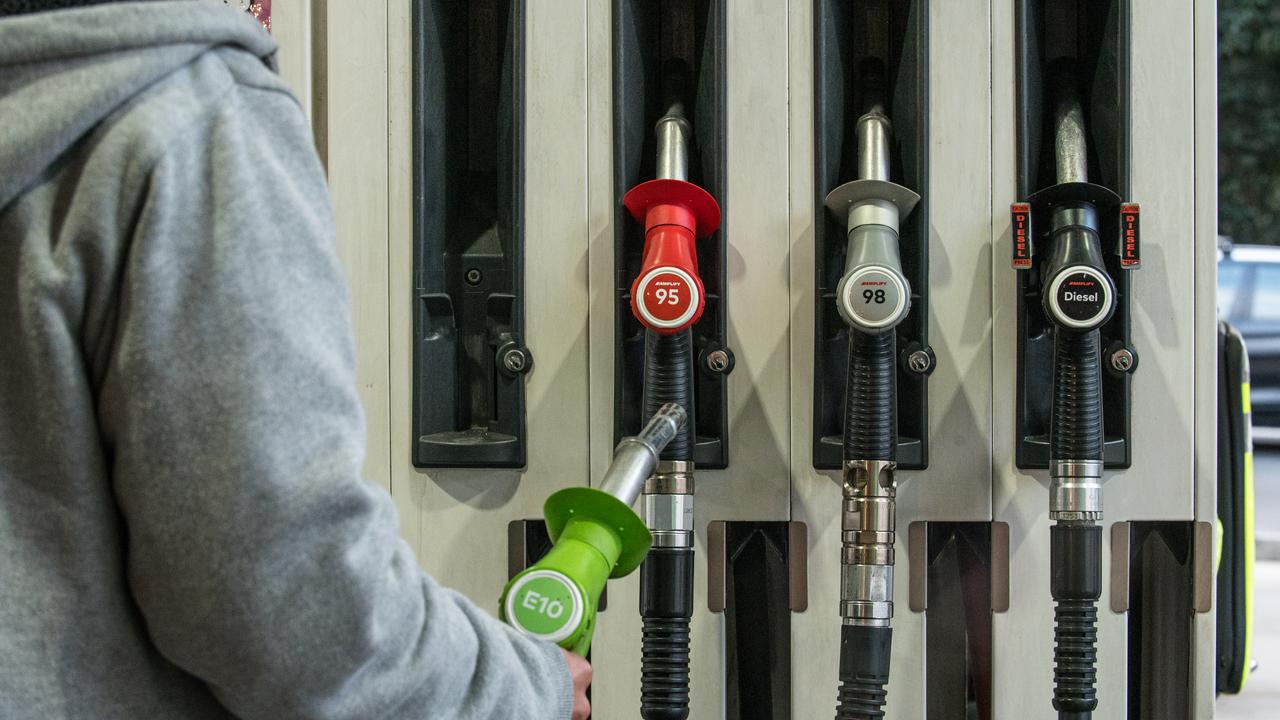
In a first for Lock the Gate, the anti-coal and gas campaigner has seized on the fuel tax credits available to a specific coal mine as a line of critique.
Whitehaven’s proposed metallurgical and thermal coal mine in Queensland’s Bowen Basin is already facing legal challenge from other conservation groups worried about native species, water sources and the climate, including both burning the coal and the methane that tends to escape as it’s dug up.
Lock the Gate’s focus on fuel tax credits follows a push to reform the scheme ahead of the Labor government’s economic reform summit.
Notably, the Australian Council of Trade Unions called for a $20 million cap on diesel tax exemptions ahead of the productivity talks, hot on the heels of Climate Energy Finance’s suggestion of a $50 million ceiling on annual fuel tax credits per company.
The think tank’s model would allow businesses to claim rebates beyond the cap if they reinvested the funds into decarbonisation, such as electric trucks.
Director Tim Buckley said the “cap-and-reinvest” model had been well-received in Canberra and would only capture big miners, with farmers and small businesses well below the threshold.
Without reform, he said mining companies had little incentive to shift away from diesel – responsible for 17 per cent of Australia’s annual emissions – and embrace fast-advancing clean alternatives.
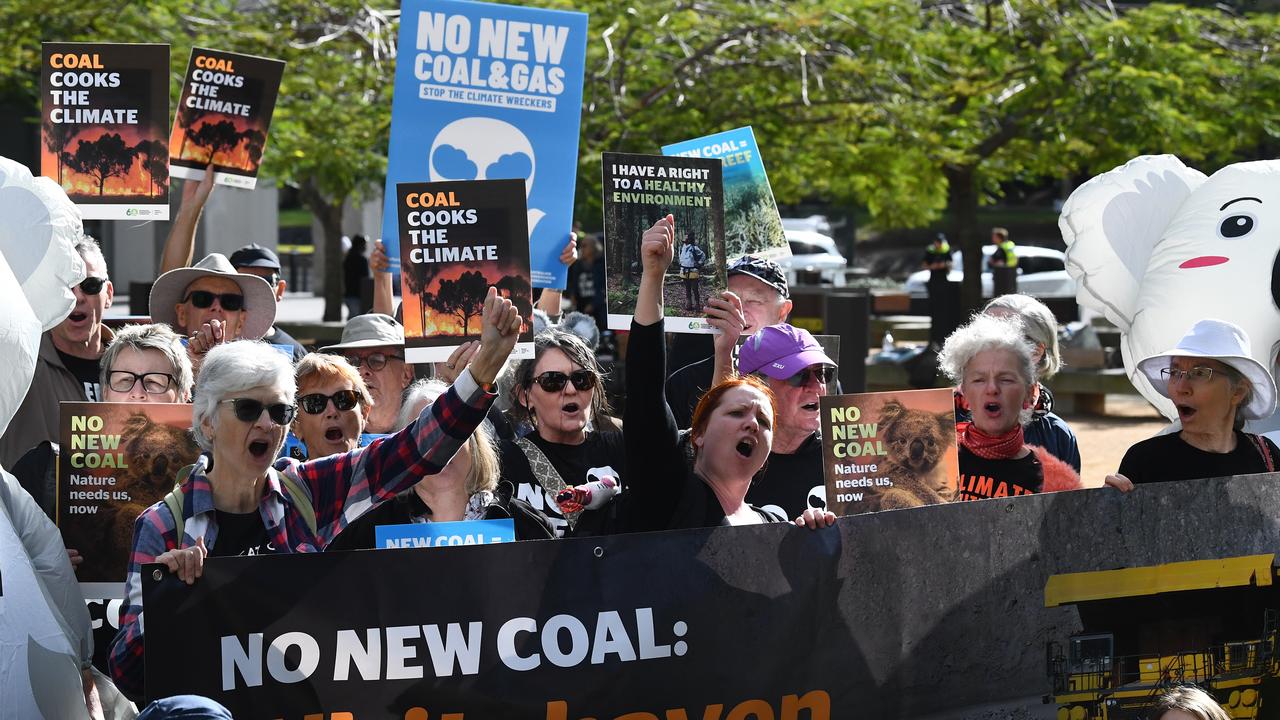
A Whitehaven spokesperson said large-scale electrification in mining remained “technically and commercially challenging” but the miner was monitoring developments in lower-emissions options.
Responding to the Lock the Gate analysis, the company spokesperson said the fuel tax excise was designed as a “user pay system” for maintaining public roads and the credit scheme complemented it by ensuring off-road mining, construction and agriculture companies did not bear the cost.
The mining sector’s contribution to the national economy “far outweighs any credit received under the system”, the spokesperson said.
The Lock the Gate analysis drew on Whitehaven-released data to estimate 85 million litres of diesel would be used by the Winchester South coal mine each year and more than 2.5 billion litres across its lifetime.
In 2025 dollars, this would result in the mine receiving about $44 million each year from the fuel tax credit scheme, or more than $1.3 billion throughout the mine’s operating life.
This total is more than the $1 billion needed to develop the mine, as pointed out by Lock the Gate Alliance national co-ordinator Ellen Roberts.
The Winchester South coal mine has secured state-level approval and is undergoing assessment through federal environmental laws.
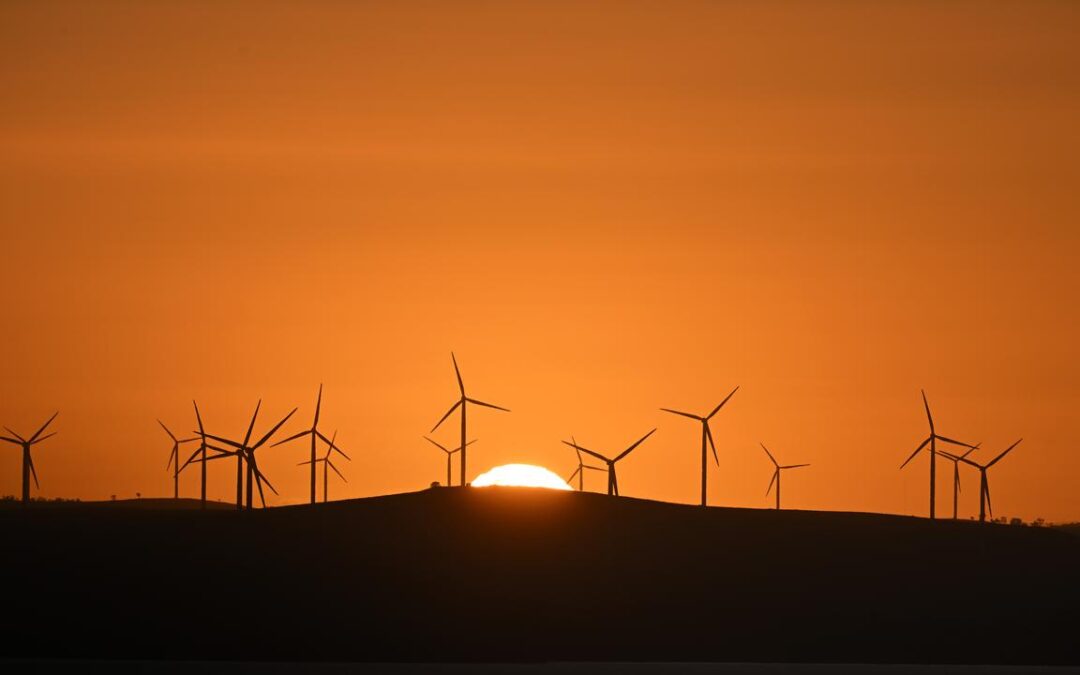
Clean energy shift to herald an ‘era of prosperity’: PM
A shift to clean energy could yield an “era of growth and prosperity” and businesses will lead the charge, the prime minister says.
In a keynote speech to the Business Council of Australia’s annual dinner on Monday, Anthony Albanese will say the private sector is set to play a defining role in fuelling economic growth linked to the renewables sector.
“The global shift to clean energy is the biggest economic transformation since the industrial revolution and it is a profound economic opportunity for Australia,” the prime minister will say in the speech.
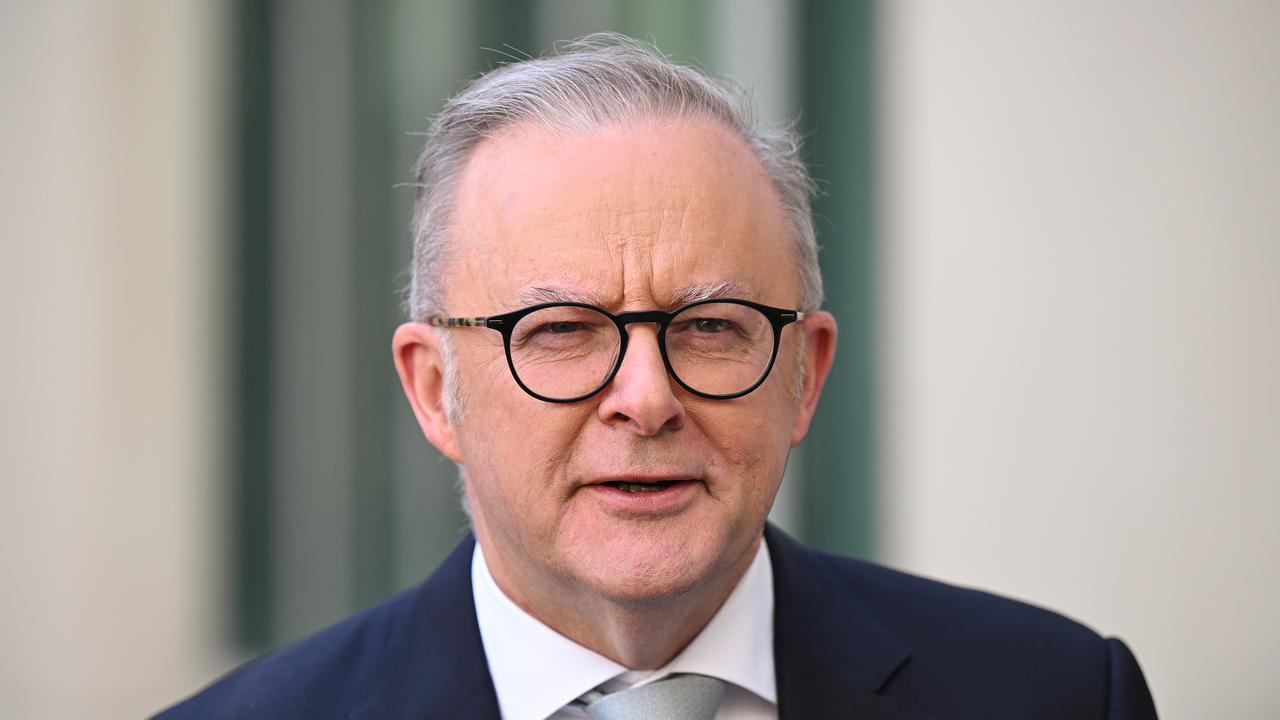
“If we act now, if we get it right, we can set our nation up for a new era of growth and prosperity, one built on our strengths as a high-skill, fair-wage economy.”
The remarks follow a report released on Friday by the peak business group, which said cutting emissions by up to 70 per cent would need capital investment of $530 billion.
The Business Council also said significant progress on building energy infrastructure was critical to reach emissions targets.
The federal government is set to unveil its emission reduction target for 2035 in coming weeks.
The prime minister will say the private sector would play a pivotal role in helping to reach emission targets and grow the economy in the process.
“This is Australia’s best opportunity to build an economy that is more resilient, more diversified and more decentralised, because regional Australia has so much to gain,” he will say.
“All of this is within reach, but only if we back ourselves, only if we invest in our people and their capacity, our businesses and their ideas.”
Following better-than expected growth figures, Mr Albanese will also say the economic approach of the government has been gathering strength.
The latest GDP figures showed 1.8 per cent growth in the year to June, surpassing the forecasts from the Reserve Bank of 1.6 per cent for the year.
“In a time of ongoing global economic uncertainty, there is no major advanced economy growing faster than Australia, and, importantly, this is being led by the private sector,” Mr Albanese will say.
“The private sector is resuming its rightful place as the driver of growth in our economy.”

Climate finance crunch time at Pacific leader talks
Pacific leaders are set for a more intimate gathering than usual at key annual talks, but excluding some heavyweight nations may prove counterproductive to goals of luring crucial funding for the region.
As a major threat to the security and prosperity of small island states, climate change typically dominates the yearly Pacific Islands Forum and the 2025 affair hosted by Solomon Islands this week should be no different.
Island nations have long been pushing wealthy, high-emitting countries to help them adapt to the climate problem they did little to create, but accessing global pools of green finance has proven logistically challenging.
Pacific leaders have since set up a regional fund they say will be better suited to the smaller, community-scale adaptation projects favoured by the region.
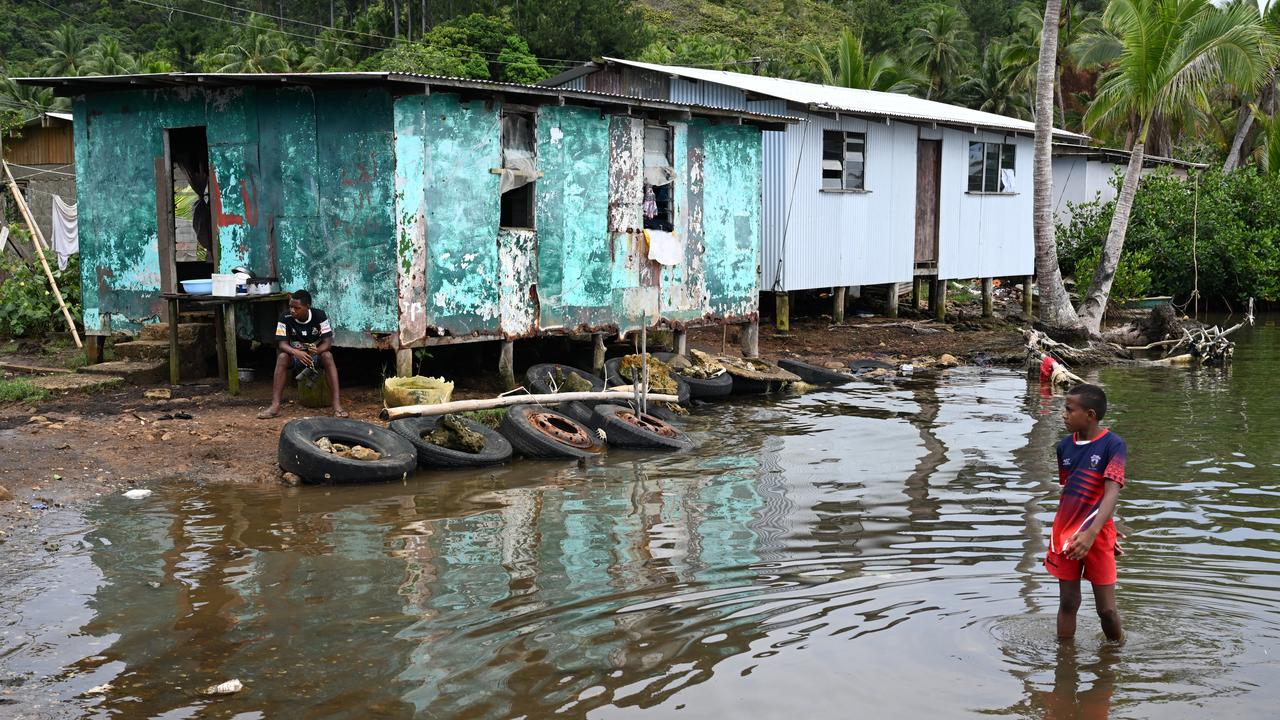
Australia, one of the 18-member bloc, has already committed $100 million to the fledgling fund.
Wesley Morgan, research associate at the Institute for Climate Risk and Response at UNSW, said the regional heavyweight would be expected to chip in more.
“There’ll be an expectation that Australia contributes more and works to leverage that regional fund to attract support from other nations as well,” Dr Morgan, also a Climate Council Fellow, told AAP.
But the Solomon Islands’ decision to keep out dialogue partners, including countries such as China, United States, France and Japan, might limit such opportunities.
Solomon Islands Prime Minister Jeremiah Manele made the call following pressure from Beijing to exclude Taiwan, which is a development partner for the forum.
Lowy Institute Pacific Islands program director Mihai Sora said the annual talks had recently become “congested with geopolitical intrigue”, leaving important regional issues, such as health crises, struggling for airtime.
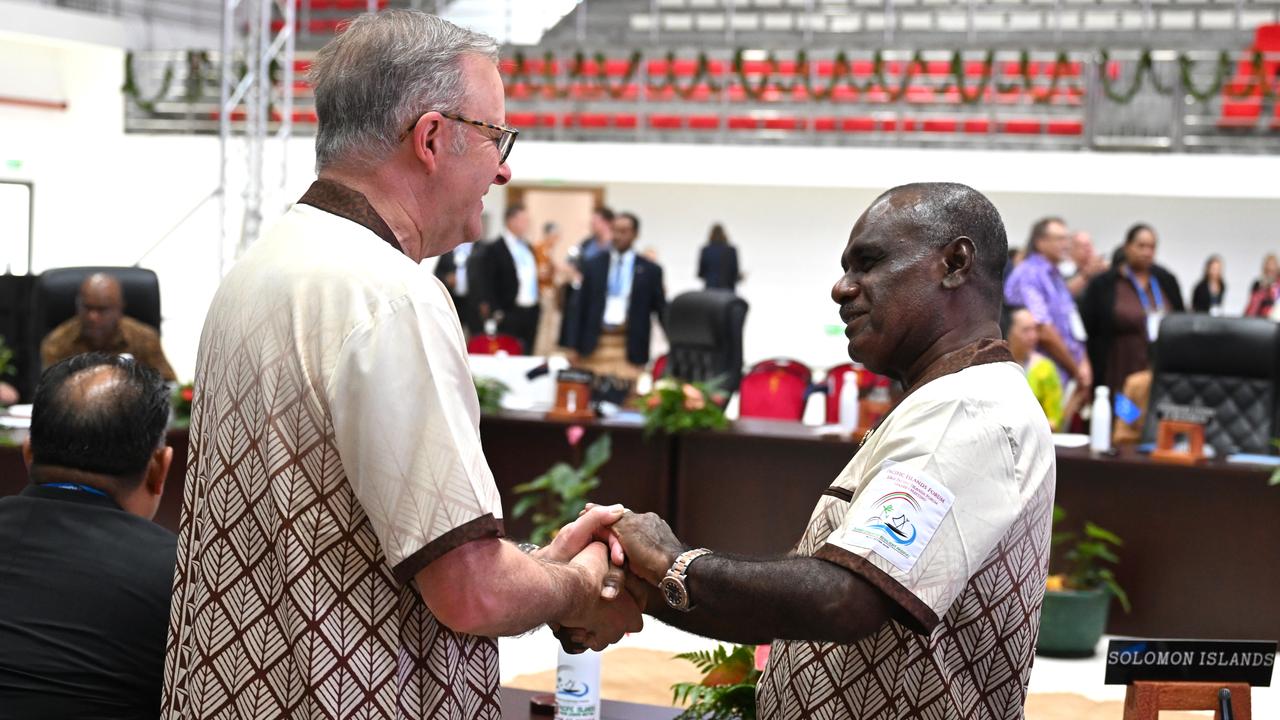
On the other hand, attracting foreign climate finance – a priority of many member states – could be challenging with a more closed-off conference.
Progress towards a meaningful collective security agreement could also be more difficult in such a setting, the former diplomat said.
Mr Sora said the public focus of the 54th Pacific Islands Forum Leaders’ Meeting would be on celebrating unity and shared priorities but privately, real differences were starting to emerge on foreign policy.
“Some Pacific leaders are leaning into western partners, others are stridently non-aligned, and others are leaning into China and accommodating China’s effective intrusion into the Pacific Islands Forum, an institution of which it’s not even a member,” he said.
Mr Sora did not expect this tension to present itself in the leaders statement issued at the end of the five-day event, a document that details key decisions and outcomes from the summit.
Dr Morgan said COP31 discussions would also be bubbling away in the background, with Australia yet to secure the rights to co-host the global climate talks with the Pacific in 2026 and muscle out a rival bid from Turkey.
“The bid has not been secured, but Pacific countries want to see this happen,” he said.
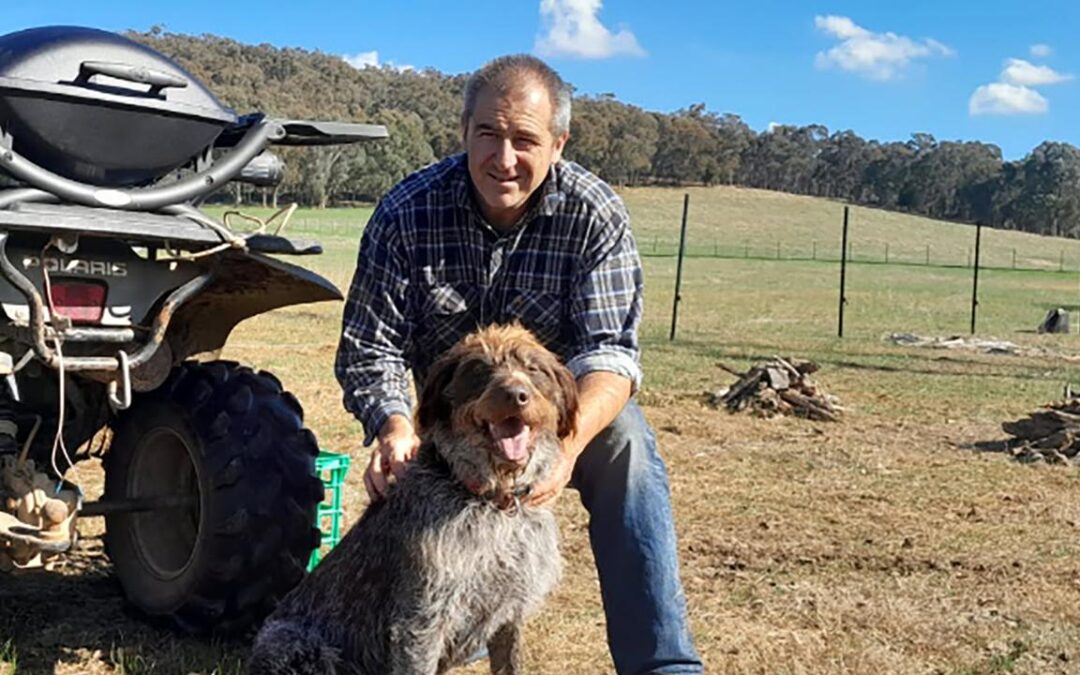
Full honours for officer killed on brink of retirement
Detective Leading Senior Constable Neal Thompson went to work one final time with his retirement tantalisingly close.
He was looking forward to spending more time with the love of his life, Lisa, and already had a list of tasks to tackle in his free time.
But that golden years dream was cruelly snatched away almost a fortnight ago when he was gunned down while attempting to serve Dezi Freeman a warrant.
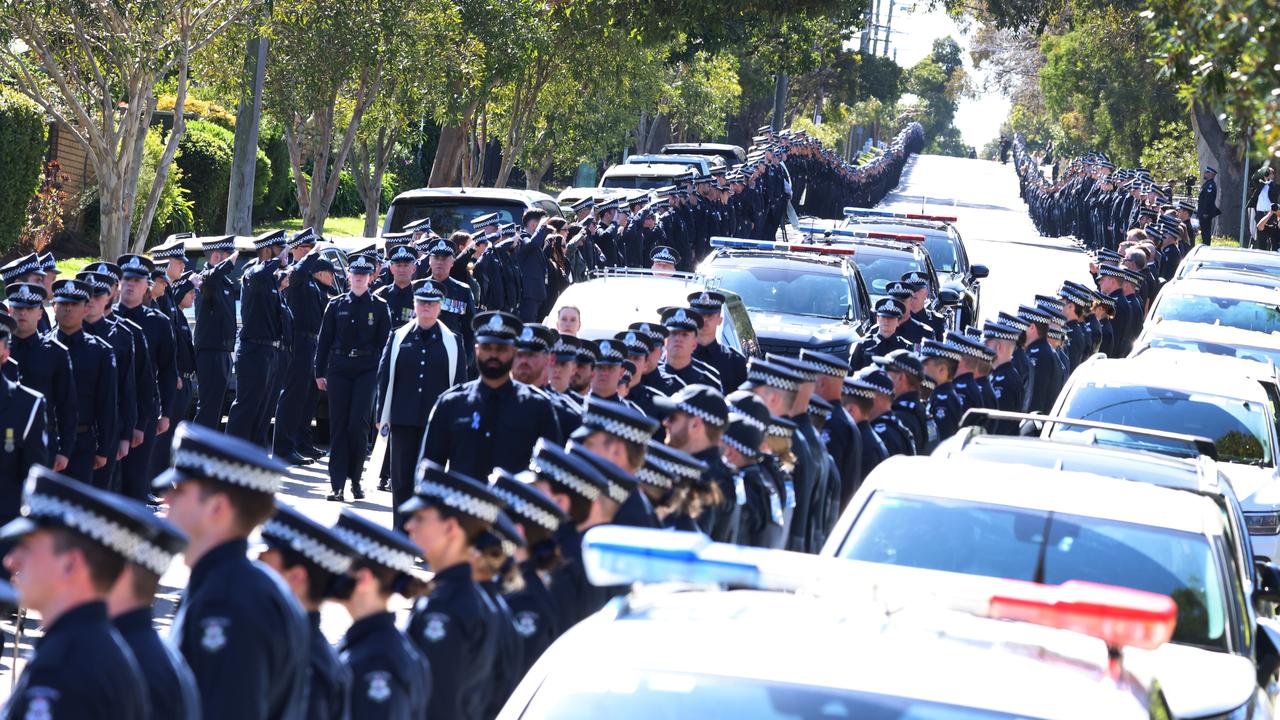
Instead, his partner will be among thousands of mourners who farewell the 59-year-old at a funeral at the Victoria Police Academy later on Monday.
Described as an adventurer, Det Lead Sen Const Thompson revelled in the great outdoors and regularly ventured out into nature on trips with friends and colleagues.
He is said to have found new purpose since meeting Lisa, described as the love of his life who he proudly built a new home with.
A veteran officer of 38 years, he joined the police in 1987 and worked his way up to being a detective at the Major Fraud Squad and the State Crime Squad before shifting to Wangaratta to join the Crime Investigation Unit in 2007.
Members of the force will form a guard of honour for him as they did on Friday for colleague Senior Constable Vadim de Waart-Hottart, also killed in the same incident.
An estimated 3000 mourners attended the 34-year-old’s funeral, triple the number expected.
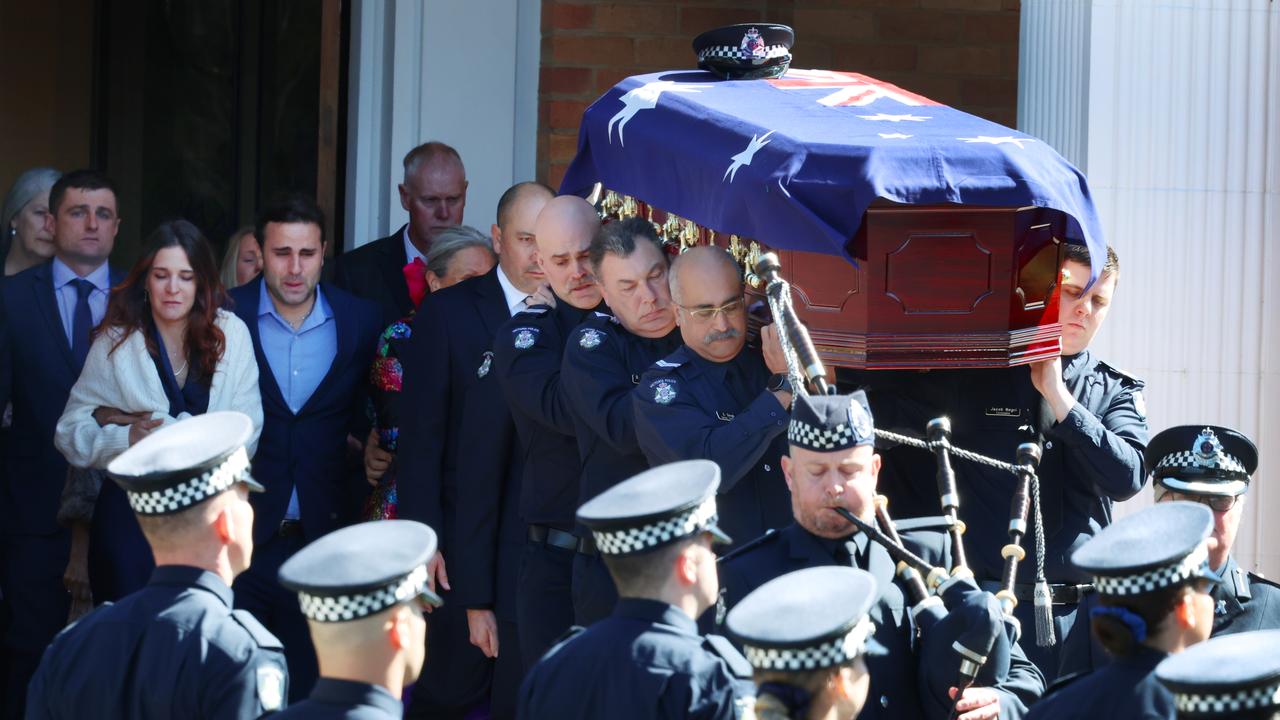
The Belgian native was remembered as a smiling protector with an enduring Batman fascination, given a send off worth of a real-life superhero.
The two officers were among 10 police serving a warrant at a property in Porepunkah, about 300km northeast of Melbourne, when they were shot dead and another colleague seriously hurt on August 26.
Freeman, 56, fled into bushland and remains at large.
Hundreds of officers are looking for him in Victoria’s high country, with more than 100 properties searched, as investigators believe some people know his whereabouts.
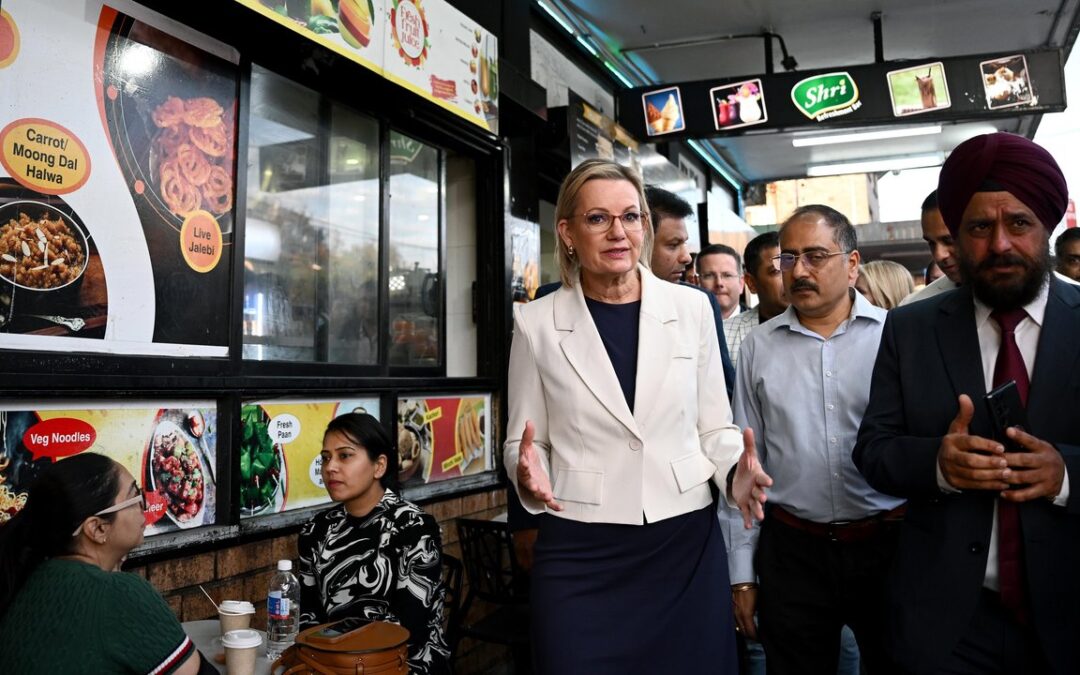
Leader tries to fix Indian ties, but won’t apologise
Members of the Indian community have extended a warm welcome to the opposition leader after she declined to apologise for a senator’s controversial migration comments.
Coalition Senator Jacinta Nampijinpa Price forced her party into days of damage control after saying in an interview the government was bringing in Indian migrants who would vote for Labor and support its policies.
Opposition Leader Sussan Ley has since reiterated coalition support for the Indian diaspora, which makes up the second-largest foreign-born community in Australia.
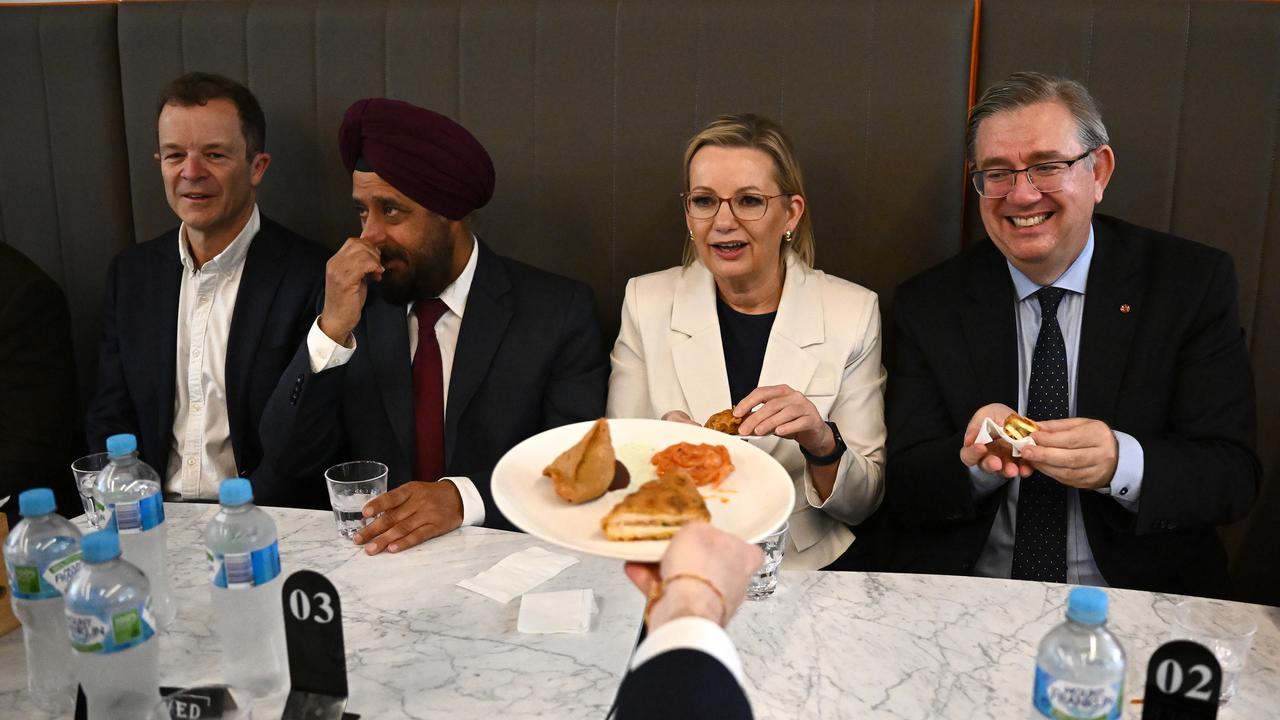
In an attempt to smooth over relations, she visited the western Sydney suburb of Harris Park, which is also known as Little India, on Sunday afternoon.
Community members welcomed Ms Ley with smiles and flowers, and she was taken on a walking tour of a high street, where she met local business owners and sampled food at a restaurant.
While she declined to formally apologise for Senator Nampijinpa Price’s comments on behalf of the coalition, she added the remarks should not have been made.
“The comments were wrong, they were not correct, they should not have taken place and corrections have been made,” she told ABC’s Insiders program.
“We value, respect and love our Indian community, as we do all of our migrant communities.
“I did hear from the Indian community that they felt hurt at what they heard.”
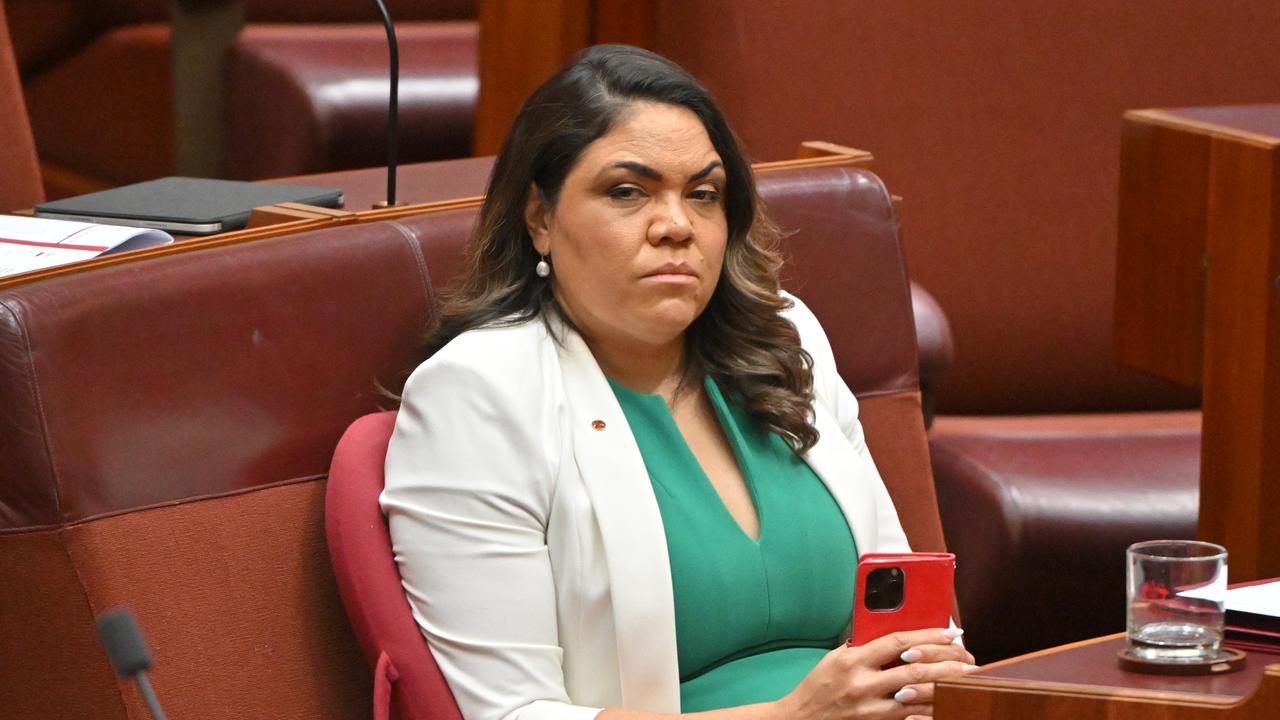
In a statement, Senator Nampijinpa Price said she regretted “not being clearer in my comments”.
“I know that many Australians of Indian ancestry – and Indian migrants living in Australia – are distressed, not only by my comments but also in reading associated newspaper coverage,” she said on social media
“My comments were never intended to be disparaging towards our Indian community.
“And I wish no ill-will whatsoever to the Indian community – or any other migrant group.”
But Senator Nampijinpa Price also used her post to air claims senior Liberal frontbencher Alex Hawke berated members of her staff following the interview in which she made the initial comments.
“He even pressed my staff that if I did not comply with his requests, I may end up like another female member of the coalition – who I won’t name,” she said.
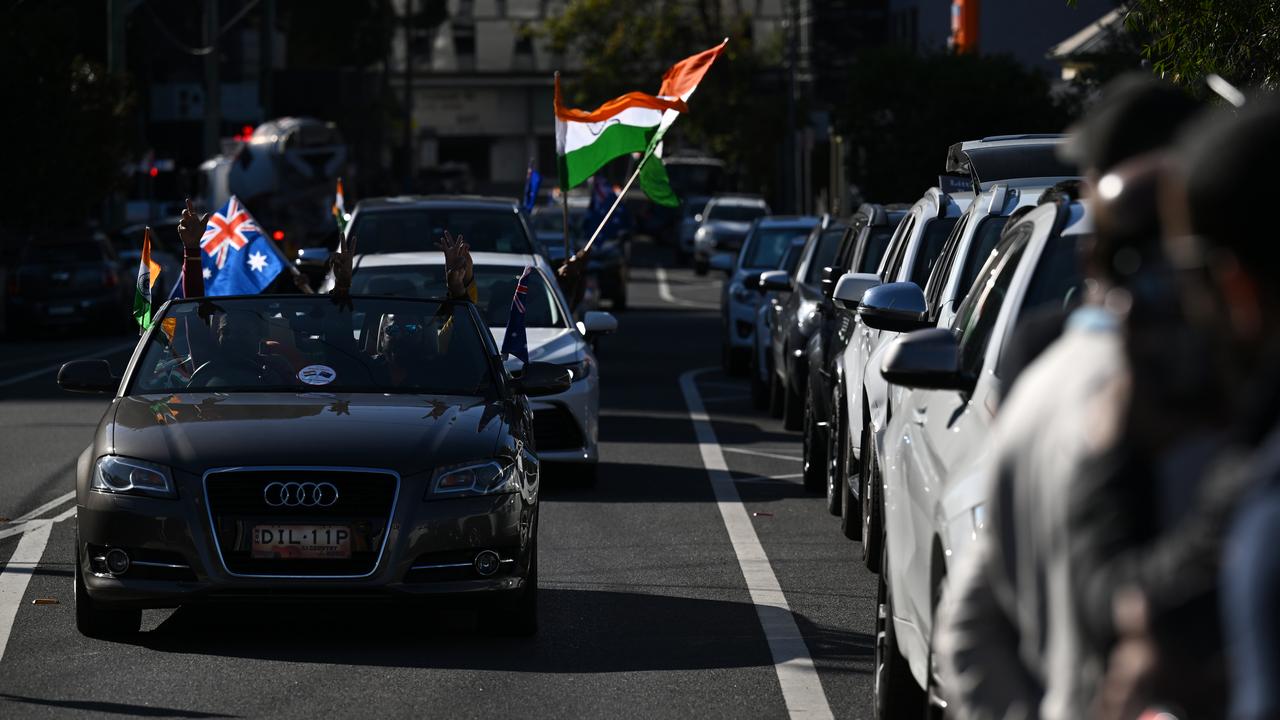
Mr Hawke issued a subsequent statement in which he said he spoke with the senator and he “accepted her explanation of how her comments have been misinterpreted and subsequently weaponised by Labor”.
He did not address her allegations of berating staff.
“I support her ongoing work to clarify the comments she made last week and helping return this debate to the issue of overall migration levels and having a sustainable migration program,” Mr Hawke said.
Despite Ms Ley offering her party’s support to Indian migrants, she criticised the current migration system as a “mess” and added many were losing confidence in how programs were run.
“The issue here is not about the migrants, but about the infrastructure,” she said.
“You can never get the information from the government about what proportion of individuals are here under what visas, with what conditions attached to those visas, all you get is this headline figure.”
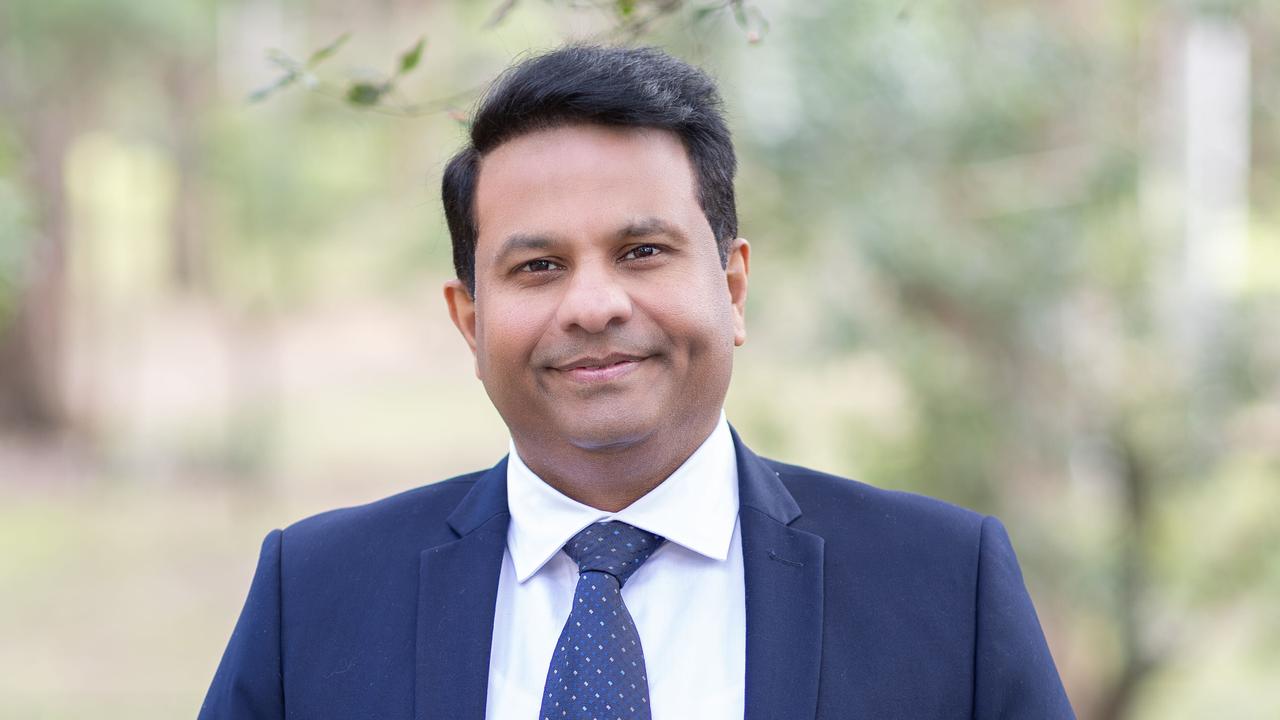
The government said its permanent migration intake for 2025/26 would remain on hold at 185,000.
Sreeni Pillamarri, a Liberal representative on Parramatta City Council, which takes in Harris Park, said Senator Nampijinpa Price’s comments had come as a shock.
“(An apology) should not come from the leader of the opposition, it should come from the member who made them,” he told AAP.
“Being from the same heritage, I’ve been asked a few questions about it from the Indian community in Parramatta and I’ve said the comments from Senator Price are not acceptable.”
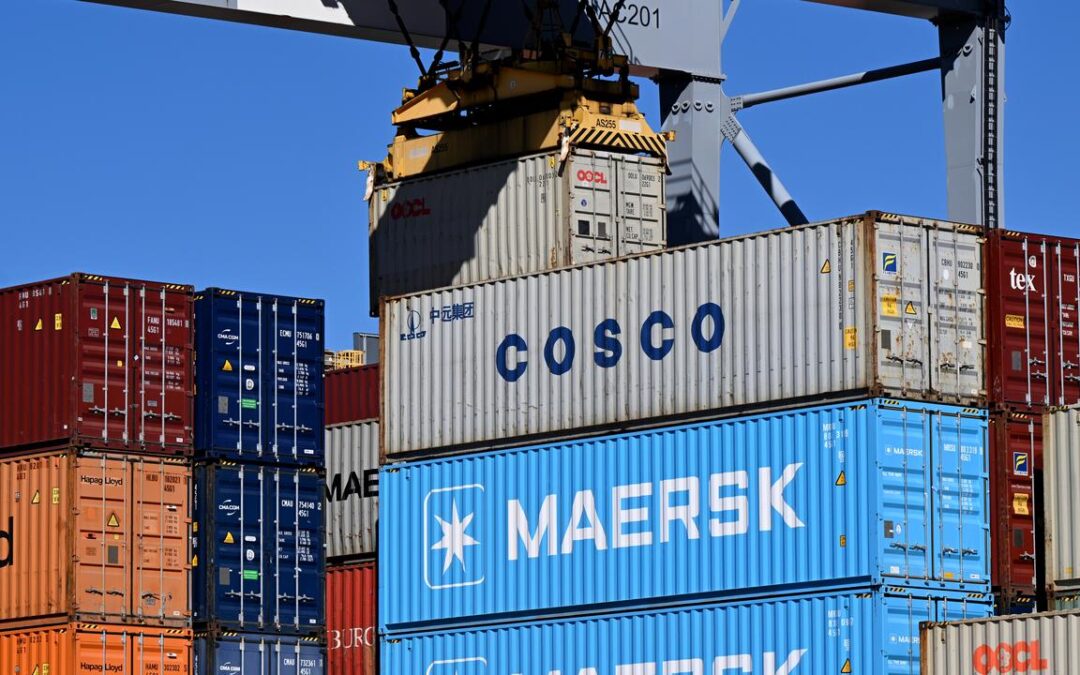
Growth figures, business data to dominate forecasts
The fallout from stronger-than expected GDP growth figures is expected to cast a shadow over economic developments, as fears mount the increase could lead to a pause in interest rate cuts.
The latest GDP data revealed a 1.8 per cent growth for the year to June, surpassing forecasts from the Reserve Bank of 1.6 per cent.
Reserve Bank governor Michele Bullock appeared to put a dampener on the prospect of an interest rate cut later in September when the bank’s board will next meet.
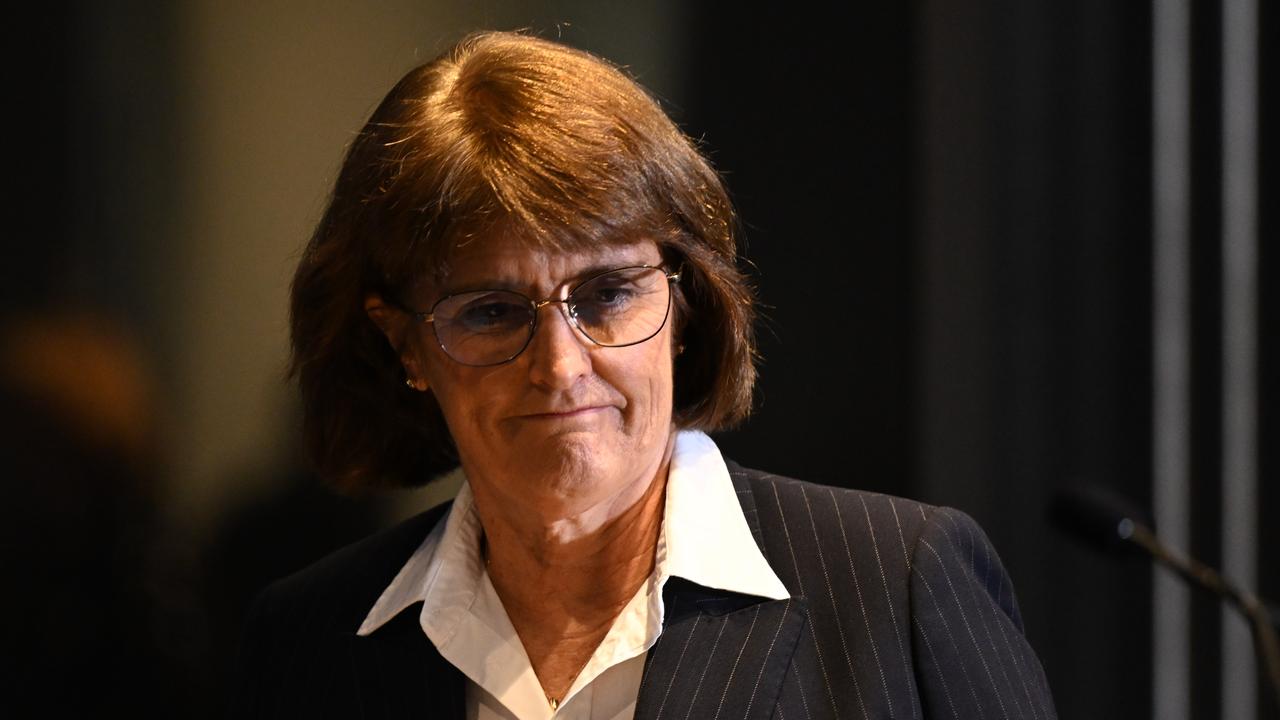
While Ms Bullock conceded it was early to determine the full impact of the GDP decision, it could affect the timing of rate calls.
“It does mean it’s possible that if it keeps going, then there may not be many interest rate declines left to come,” she said at an event in Perth on Wednesday.
Despite the figures, analysts expect a lowering of rates in the near term.
NAB senior economist Taylor Nugent said two more cuts were on the cards.
“NAB continues to expect the RBA to ease policy in November and February as it moves policy to a broadly neutral stance of 3.1 per cent,” he said.
“Policy normalisation is now reasonably well progressed and GDP data will increase the RBA’s confidence consumption will be a support for growth.”
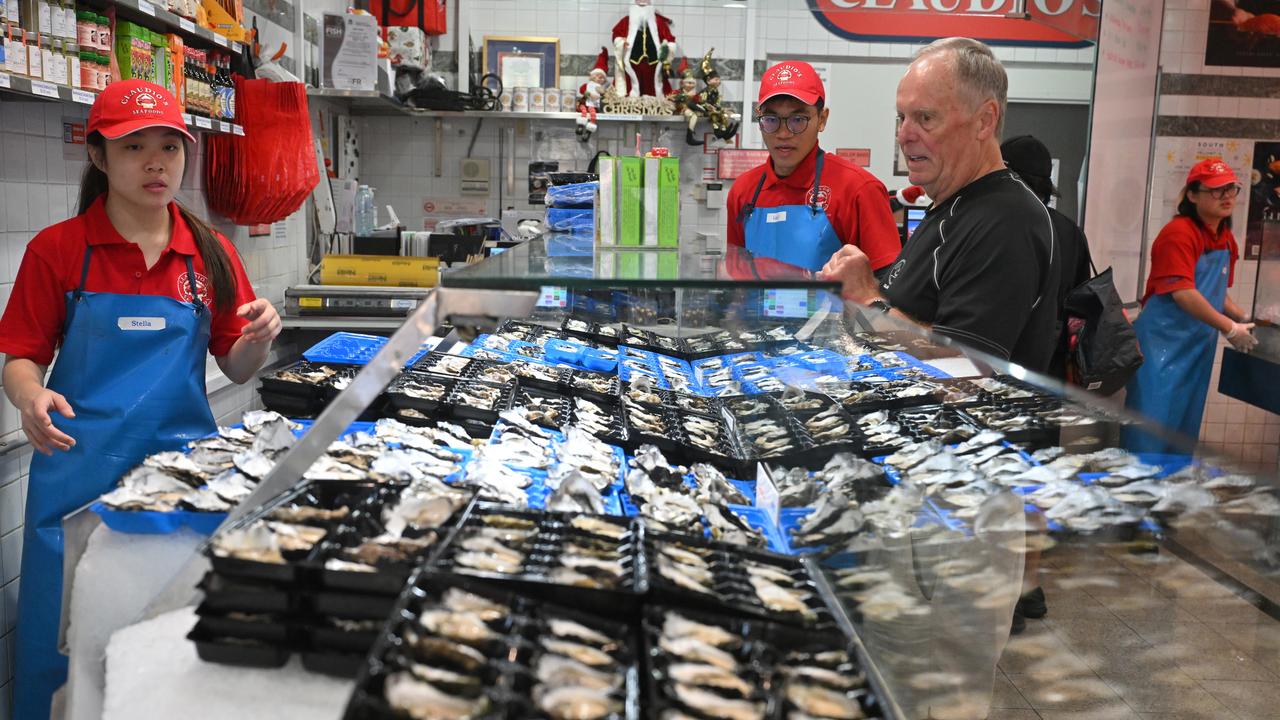
Tuesday will see a pair of consumer and business confidence surveys give further insight to the state of the economy.
NAB will release its business survey while Westpac will put out its consumer sentiment index.
The August business figures in the NAB survey come after business confidence rose to levels not seen since 2022, while the last consumer sentiment index was at a three-and-a-half year high.
Tuesday will also have the release of monthly business turnover data from the Australian Bureau of Statistics for July.
The figures come after business turnover inched up just 0.1 per cent from the previous month.
Investors on Wall Street are meanwhile weighing economic worries against optimism over interest rate cuts after data showing showing US job growth weakened sharply in August.
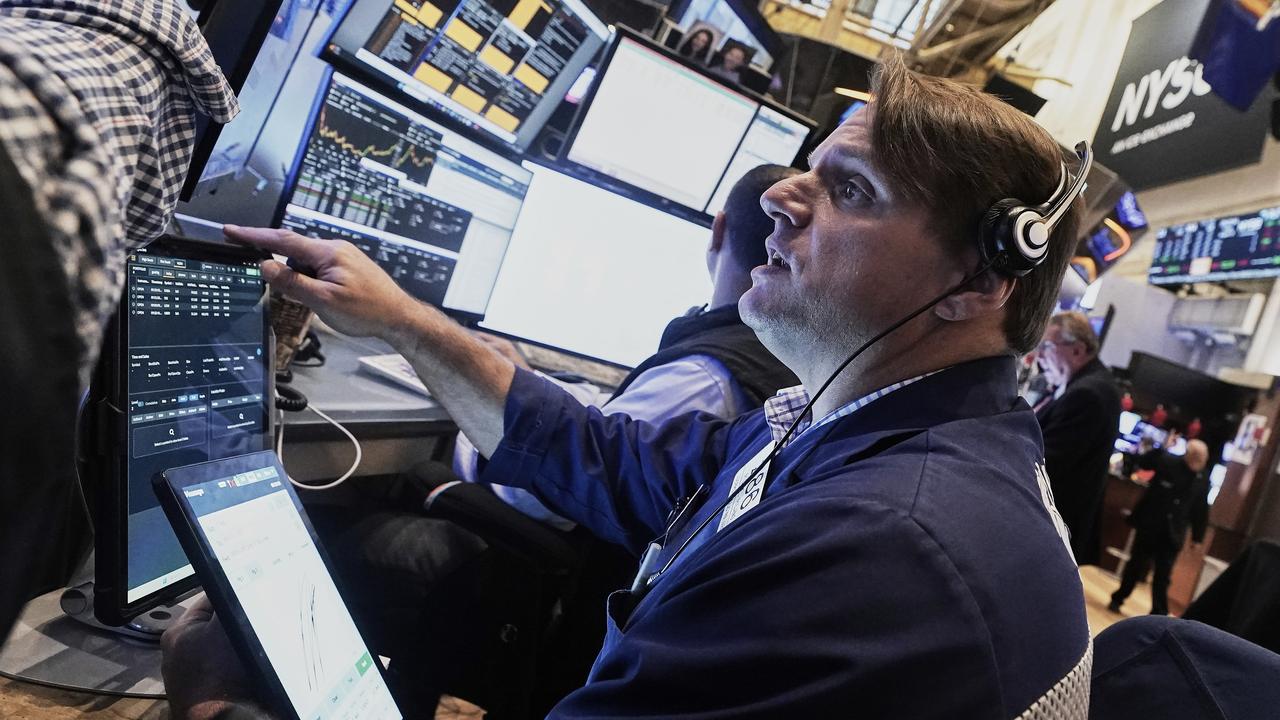
Bank shares were among those taking the biggest hit on US indices on Friday, with the S&P bank index ending 2.4 per cent lower.
The Dow Jones Industrial Average tumbled 220.43 points, or 0.48 per cent, to 45,400.86, the S&P 500 lost 20.58 points, or 0.32 per cent, to 6,481.50 and the Nasdaq Composite dropped 7.31 points, or 0.03 per cent, to 21,700.39.
Australian share futures fell 15 points, or 0.16 per cent, to 8,363.
The S&P/ASX200 rose 44.7 points, or 0.51 per cent, to 8,871.2, on Friday, as the broader All Ordinaries gained 49.1 points, or 0.54 per cent, to 9,140.5.
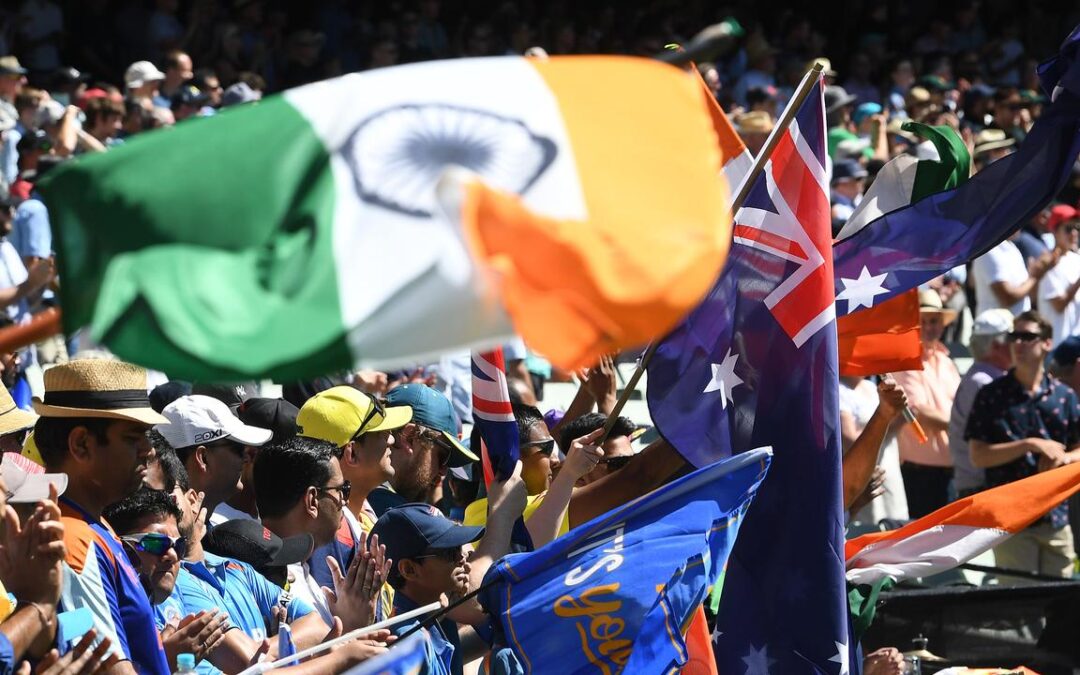
‘Respect and love’: Ley into bat for Indian community
The opposition leader has tried to further distance herself from an outspoken senator’s criticism of Indian migration, saying the diaspora has been hurt by the comments.
Coalition Senator Jacinta Nampijinpa Price forced her party to go into damage control after claiming in an interview the government was bringing in Indian migrants who would vote for Labor and support its policies.
Opposition Leader Sussan Ley said the comments were incorrect, while reiterating support for the Indian-Australian community.
“The comments were wrong, they were not correct, they should not have taken place and corrections have been made,” she told ABC’s Insiders program on Sunday.
“We value, respect and love our Indian community, as we do all of our migrant communities.
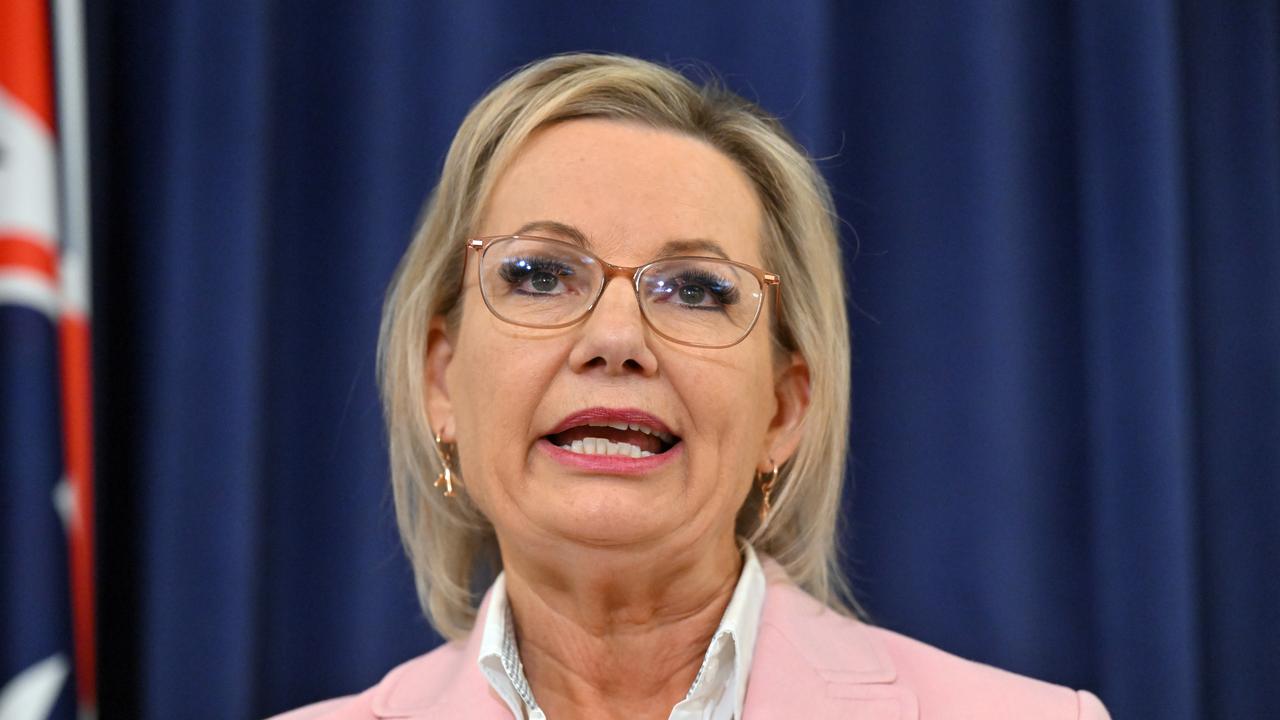
“I did hear from the Indian community that they felt hurt at what they heard.”
Senator Price later said she never meant to disparage anyone with her comments and she recognised the “enormous contribution” Indian-Australians had made.
“My concern has always been about the broader pressures of mass migration on housing, infrastructure and families from all backgrounds, not any specific community,” she posted on social media.
Her comments followed multiple anti-immigration rallies over the previous weekend, some of which featured flyers carrying anti-Indian rhetoric.
Ms Ley did not offer a formal apology to the Indian community on the behalf of the coalition but said the diaspora had her full support.
“The most important message that I can send is that appreciation of our Indian community heard directly from me as leader,” she said.
The opposition leader is expected to meet with representatives of the Indian community in western Sydney later on Sunday.
Despite Ms Ley offering support to Indian migrants, she criticised current migration as a “mess” and added many were losing confidence in how programs were run.
“The issue here is not about the migrants, but about the infrastructure,” she said.
“You can never get the information from the government about what proportion of individuals are here under what visas, with what conditions attached to those visas, all you get is this headline figure.”
The government said its permanent migration intake for 2025/26 would remain on hold at 185,000.
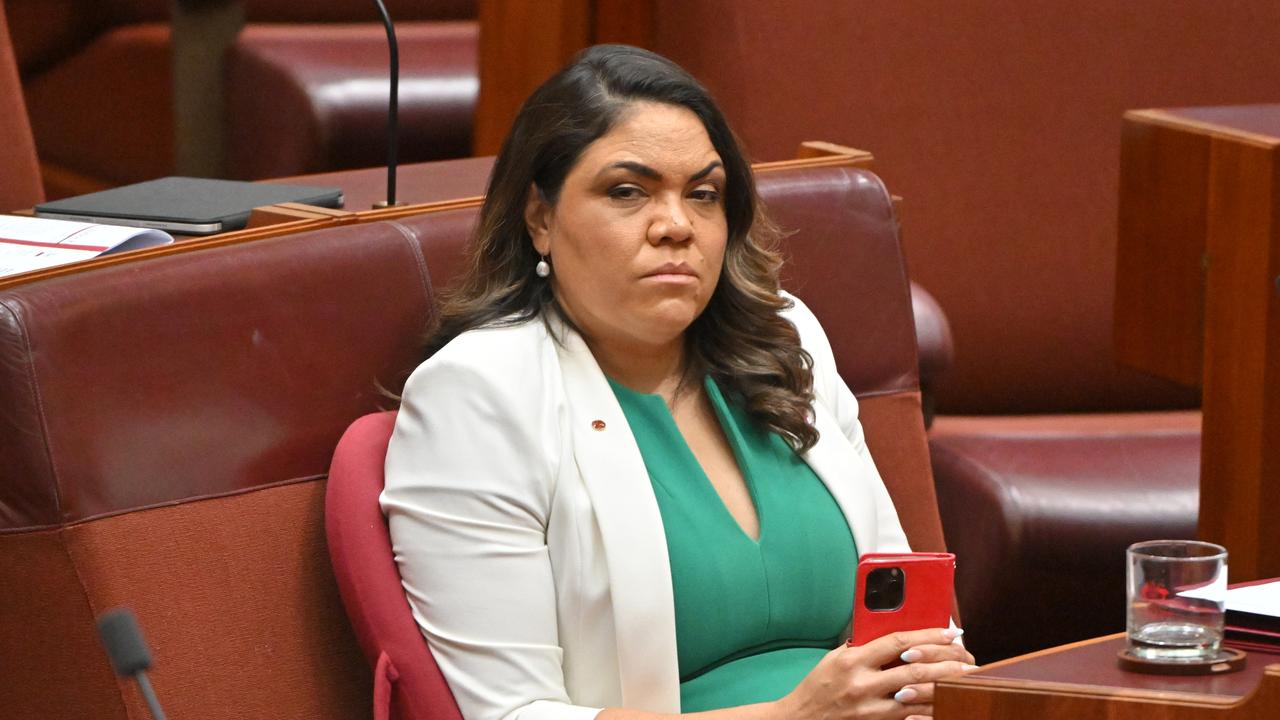
NSW Premier Chris Minns described Senator Price’s remarks as shocking, adding that he would “love to see an apology”.
“(Indian-Australians) don’t vote in a homogenous way,” he told Sky News.
“They’re highly engaged in the political process, but I’ve seen them just as engaged in the Liberal Party.
“There’s a real sense of misunderstanding, I think that’s the best-case scenario … the worst-case scenario is it’s just completely divisive and it sets Australian against Australian.”
Opposition immigration spokesman Paul Scarr said the senator’s comments were unhelpful.
“When events like this occur, you’ve got to reach out to the community, sit down with the community, empathise with the community, and build those foundations of trust,” he said.
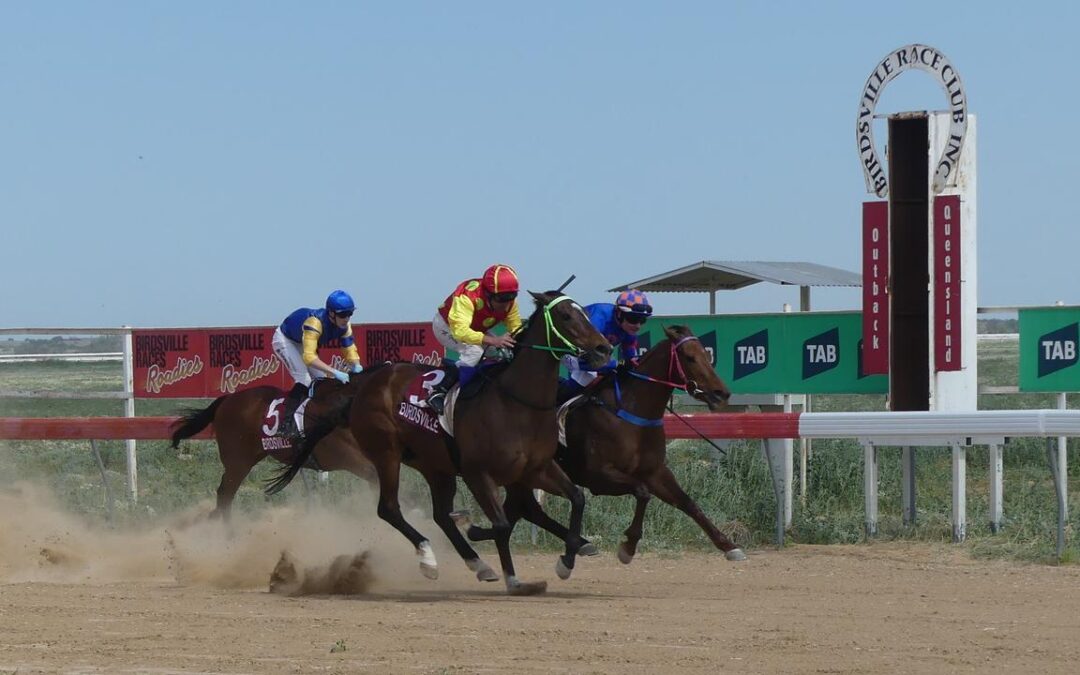
Brotherly bond key to Birdsville Races epic journey
When the Keys brothers were growing up in the bush, there was no electricity in their home and they had to ride a pony bareback 10km into town.
It might sound like one of those tall tales older generations tell their children and grandchildren to demonstrate just how easy they’ve got it.
But for siblings John, Ken and Robert Keys, stories of those frugal early years on a King Island farm, in the middle of the Bass Strait, have come to define both their brotherly bond and their lives working with horses.
The horse trainers brought their runners more than 3000km from Melbourne and Tasmania to the Birdsville Races, the first time the island state has been represented in the 143-year history of the outback Queensland carnival.
Robert Keys’ Wholesome came eighth in race five on Saturday afternoon, ahead of John Keys’ Native Clan in 10th and Ken Keys’ Anointed Lad in 12th.
The Birdsville Cup, the carnival’s $60,000 feature race, was taken out by Testator Silens, in which Birdsville local and Diamantina Shire mayor Francis Murray has a stake.
It was the first Cup in which female jockeys took out the top three places, with Bailie Baker in pole position.
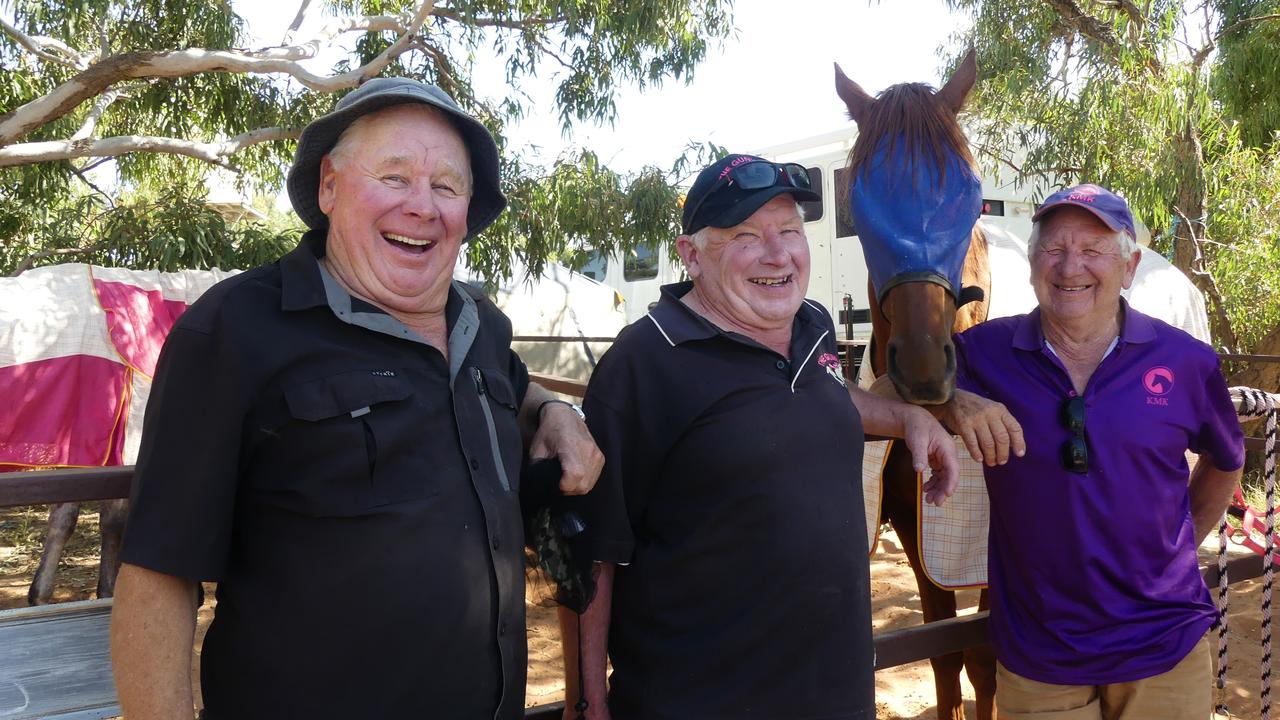
Robert Keys said the sibling rivalry was the only competition that truly mattered in the brothers’ races: “Third last would be good enough,” he joked.
Horses have always been a part of the Keys’ lives, with the brothers riding ponies to help on the family farm as boys.
John Keys remembered his pony Pixie, who he rode into town to visit his teenage sweetheart Heather.
“I used to ride that pony six miles, I’d go in there and go to the beach.
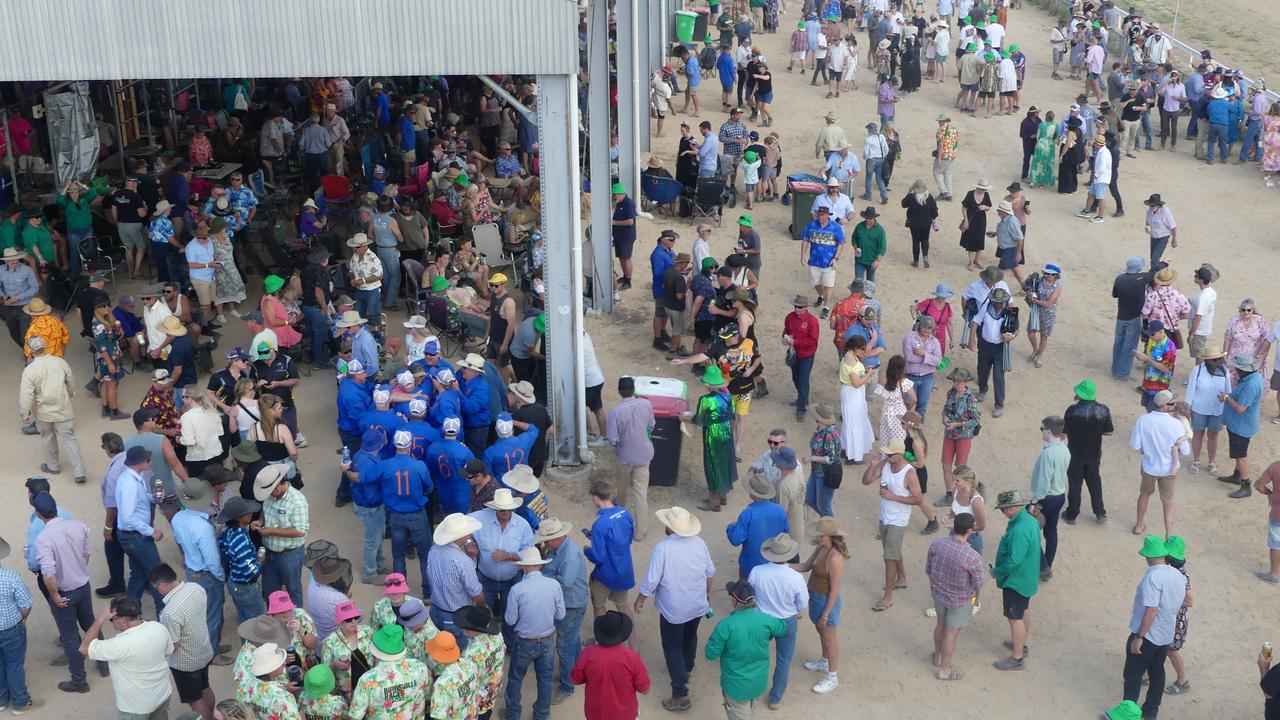
“I tried to give her a ride on the back of the horse, but she was too scared to get on.”
Those memories led the couple back together about a decade ago, a rekindling of their childhood romance.
These kinds of tales of deep connection are part of what bonds many organisers, trainers, jockeys and punters at the Birdsville Races.
Thousands of people came to the dusty outpost – a bucket list road trip for many groups of friends and family.
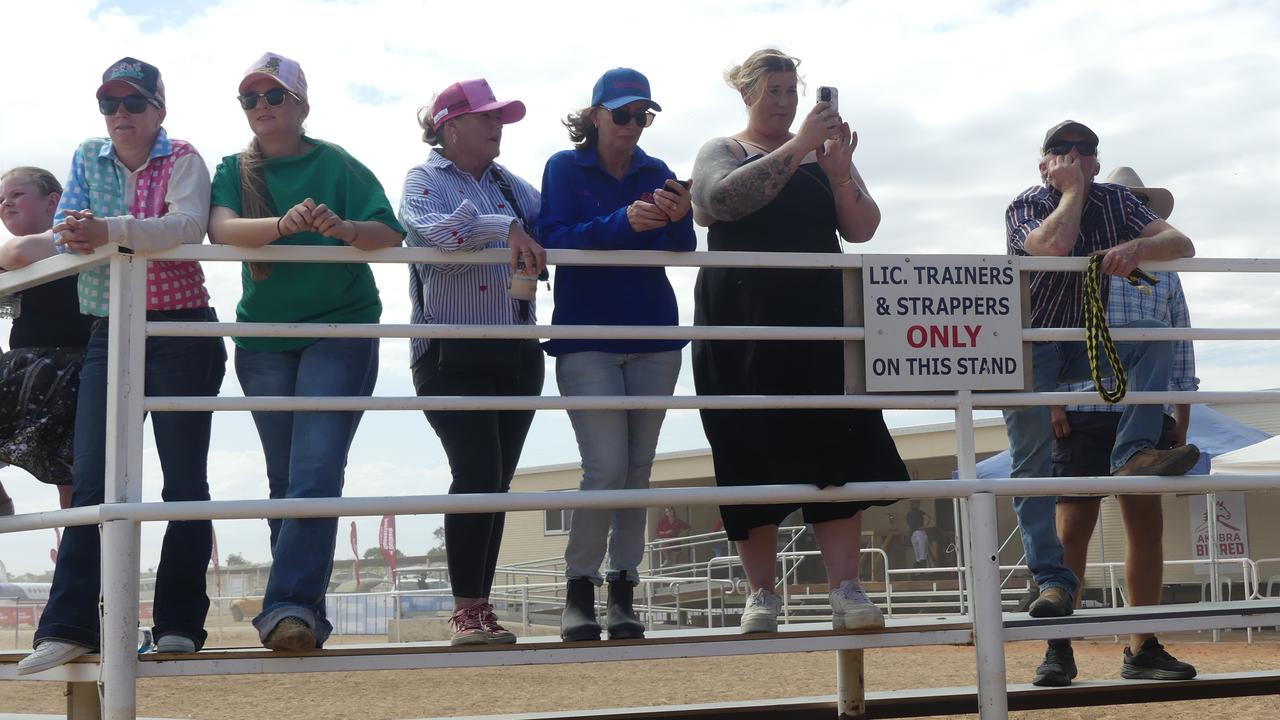
Crowds gathered outside the Birdsville Hotel each night over race weekend to watch the action in the Fred Brophy boxing tent.
Mr Brophy pitched his big top for the final time at Birdsville in 2025, having been a fixture for 43 years.
His travelling boxing troupe take on willing punters at races, shows and rodeos in the outback, a rough-and-tumble spectacle that is only legal in Queensland.
At 73, Mr Brophy said he was ready to hang up his well-worn felt hat and red silk shirt to instead enjoy Birdsville as a spectator.
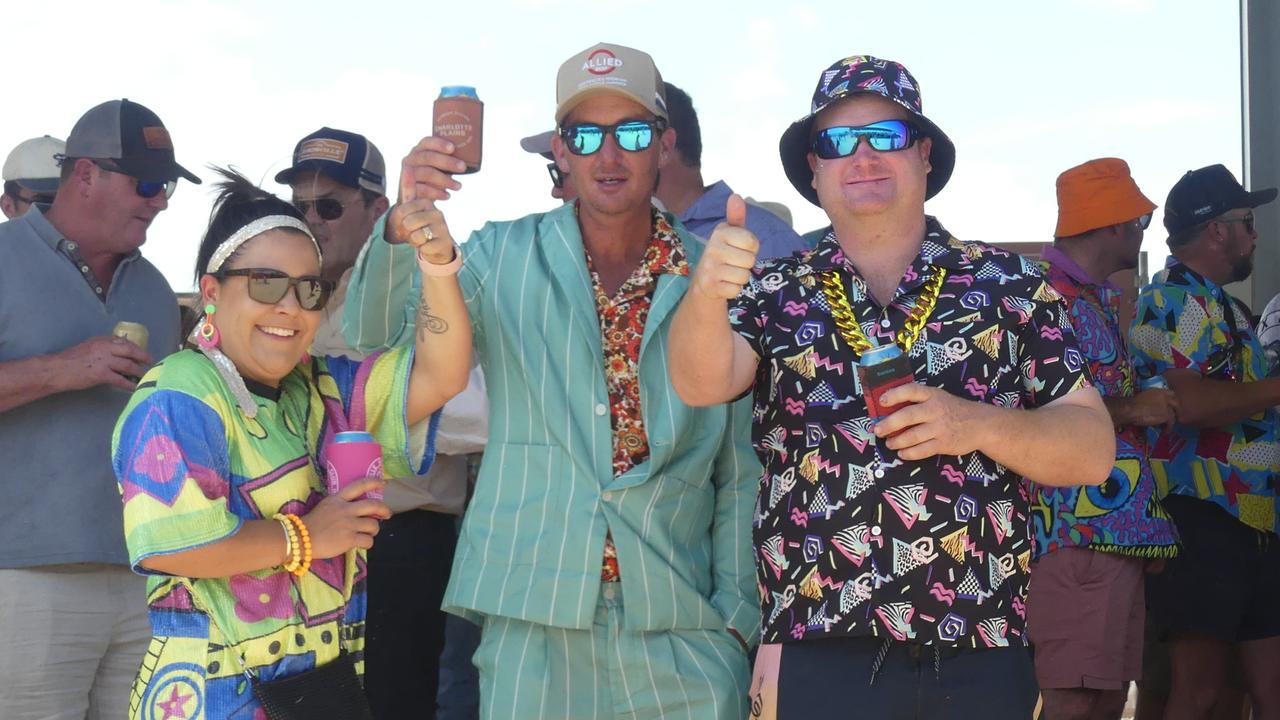
“I feel a bit of a tear in my eye, I think that’s what they call it,” Mr Brophy said before his last round on Saturday, his Jack Russell terrier Ringo at his feet.
“You’ve got the horse racing, the jockeys, the trainers, the hotel, this is all a part of what we do out here.
“If you haven’t been to the Birdsville Races, you haven’t been anywhere in Australia … you don’t know what you’re missing out on.”
This AAP article was made possible by support from the Birdsville Race Club
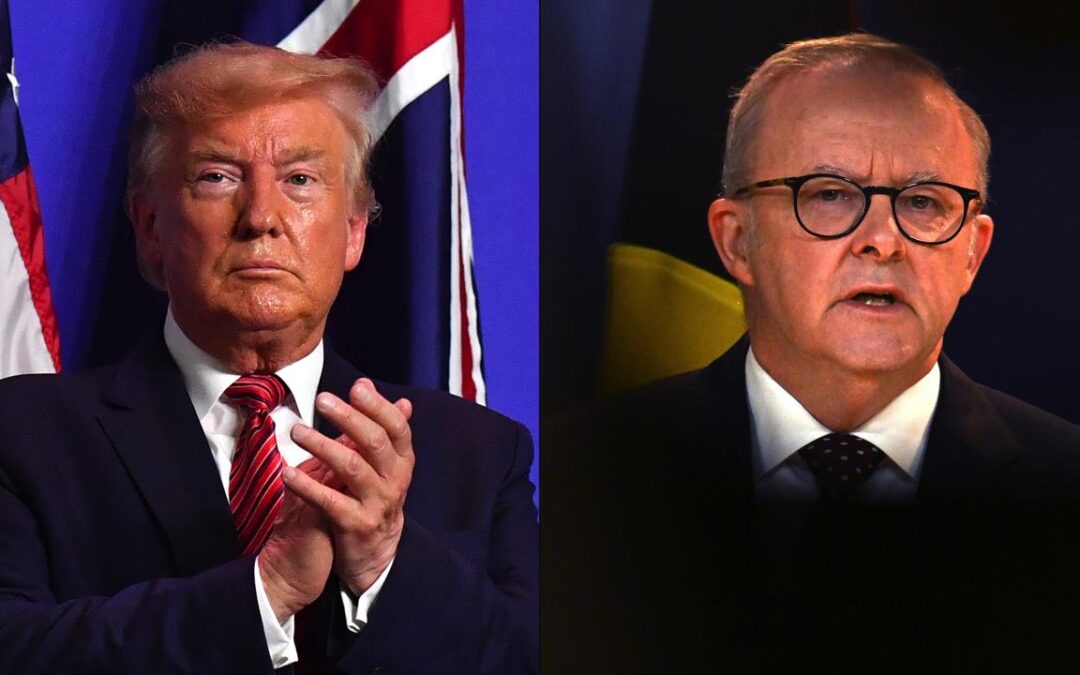
Latest phone chat points towards Albanese-Trump meeting
A fourth phone call shared by Anthony Albanese and Donald Trump is being flagged as a step towards an in-person meeting between the prime minister and the US president.
Almost a year into Mr Trump’s second term in office, Mr Albanese has struggled to organise face-to-face talks with the Republican leader, after a planned meeting in Canada in June was cancelled at the last minute because of escalating Middle East tensions.
However United States Studies Centre director of research Jared Mondschein says it appears the two will sit down on the sidelines of the United Nations “leaders’ week,” which starts on September 22.
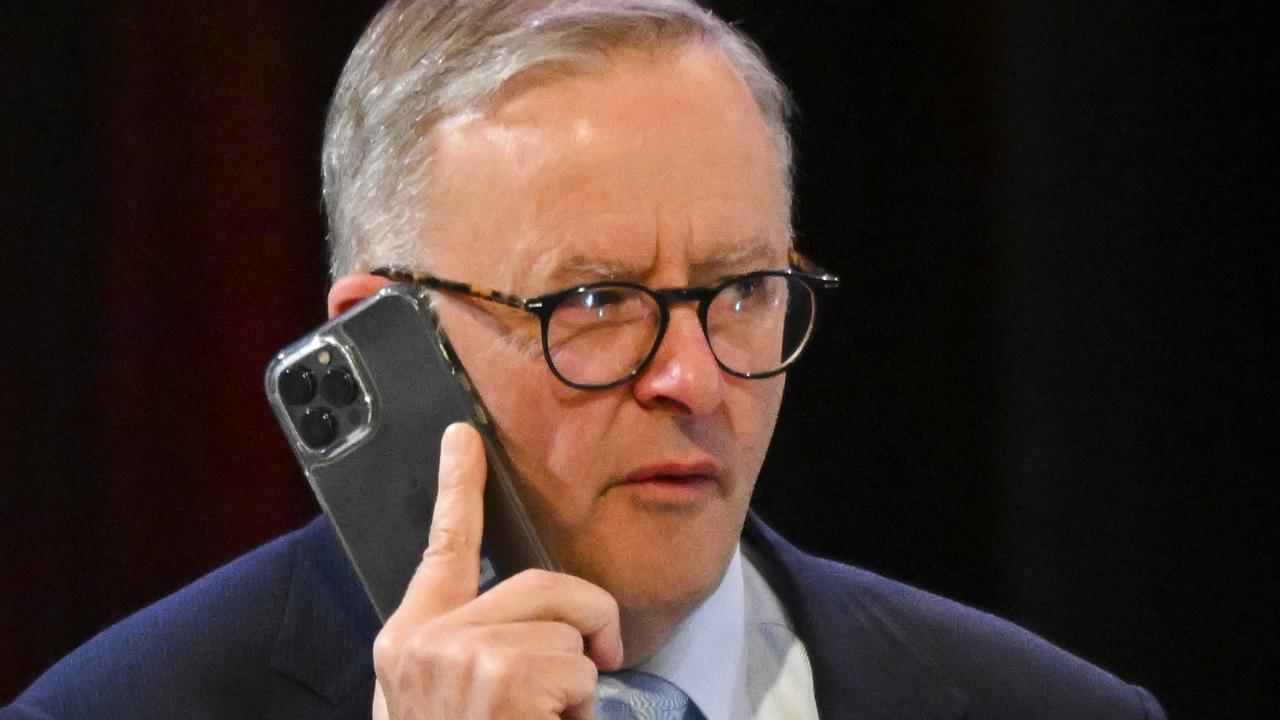
“Especially with this administration, the personal really goes a long way … so I think it is something that the prime minister does want to focus on,” he told AAP.
A readout of the call released by Mr Albanese’s office said the two leaders discussed trade and critical minerals – a conversation Mr Mondschein said was “timely” as China restricts exports of metals such as lithium and cobalt.
China dominates global production of critical minerals, which are used in products such as electric cars, solar panels and some defence technologies.
Australia, which has massive underground reserves, hopes to break China’s stranglehold.
While critical minerals were previously offered as part of a deal with the US to try to get a lower import tariff, Resources Minister Madeleine King told the ABC “critical minerals sits on its own”.
“We are in the best place in the world to be able to mine and refine those commodities – there’s no swap on these things,” she said.
Australia needed to think about its relationship with the US in developing these rare earth supply chains “because it’s a really tall order to establish this industry”.
“We saw a really very significant moment a few weeks ago when the US Department of Defence invested a significant amount of money in introducing a floor price into a light rare earths mine,” Ms King said.
“We want to work with them on how we might have a similar system, or they might invest in US strategic reserve to make sure we lift all boats on that tide so we can create that rare earth industry that the world needs to have a diversified supply chain.”
Australia was “looking at a range of things” through critical mineral strategic reserve offtake agreements, Ms King said.
“A floor price may be part of that, a stockpile of sorts. And all of these things can work together to introduce stability into a market that is subject to intensive manipulation.”
Asked if a face-to-face meeting with Mr Trump was closer, Ms King said she had “no doubt that meeting will happen but it will be off the back of a number of close phone calls and other interactions with the US Administration”.
There was no mention of the AUKUS nuclear submarine deal in the Australian readout of the call with Mr Trump but the government insists the military agreement with the US and UK will go ahead, despite the White House’s decision to review it.
“It is on schedule and we are really confident about its progress,” Defence Minister Richard Marles told reporters in Tokyo after meetings with Japanese officials.
The opposition has long criticised Mr Albanese’s failure to secure a meeting with Mr Trump.
“It’s been more than 300 days since the US election, yet the prime minister has not secured a face-to-face meeting with the president, who has already met with over 30 other world leaders,” opposition trade spokesman Kevin Hogan said.